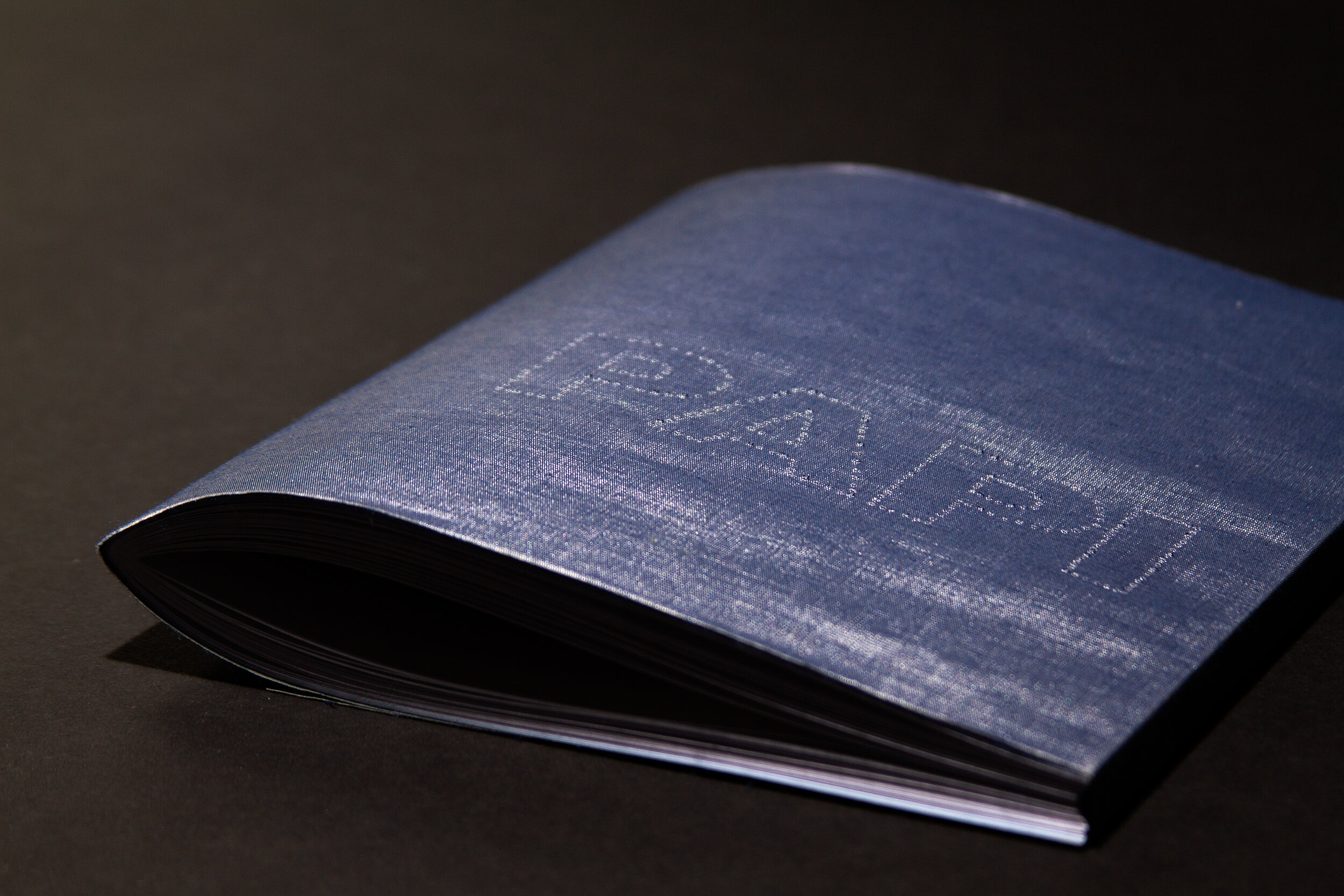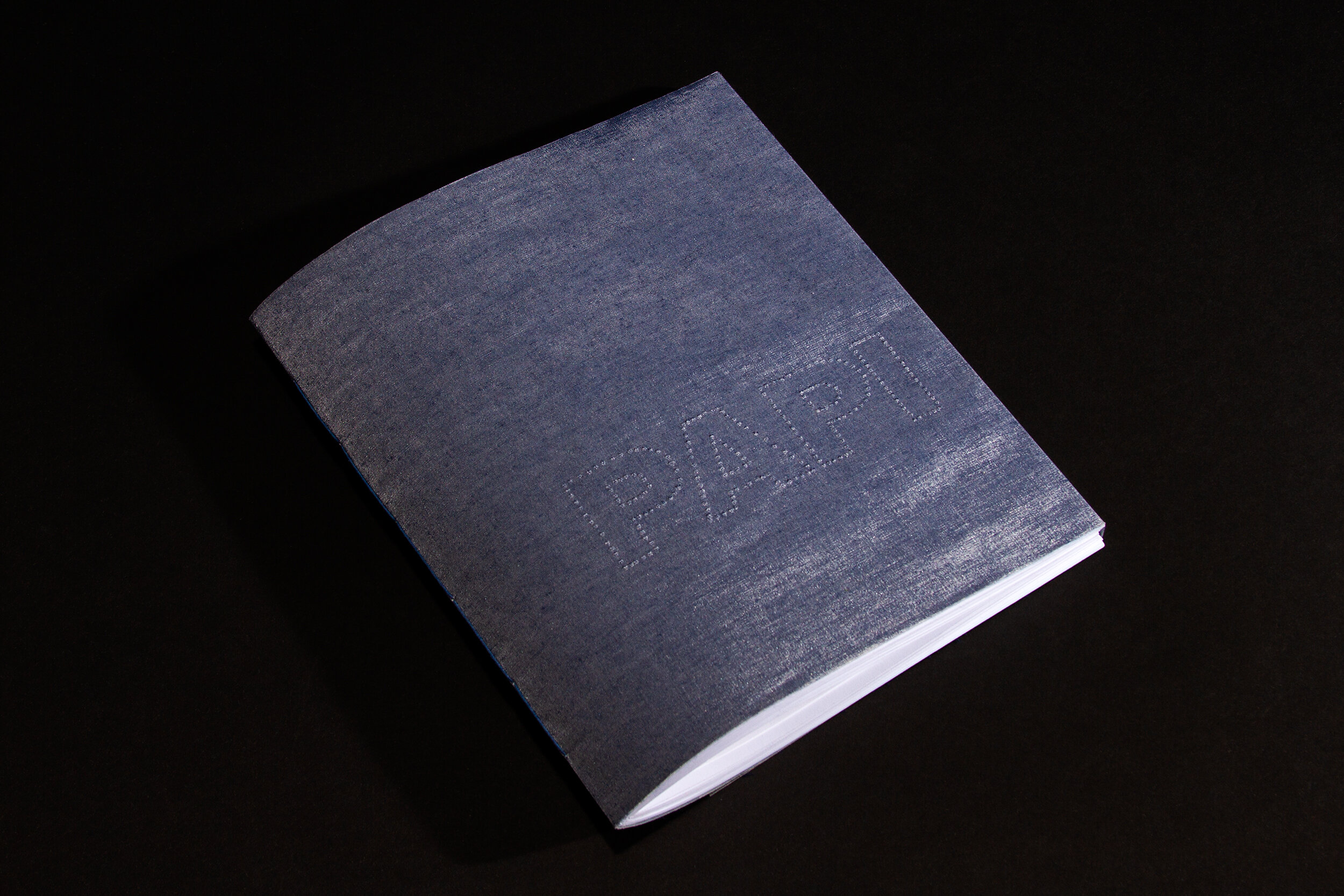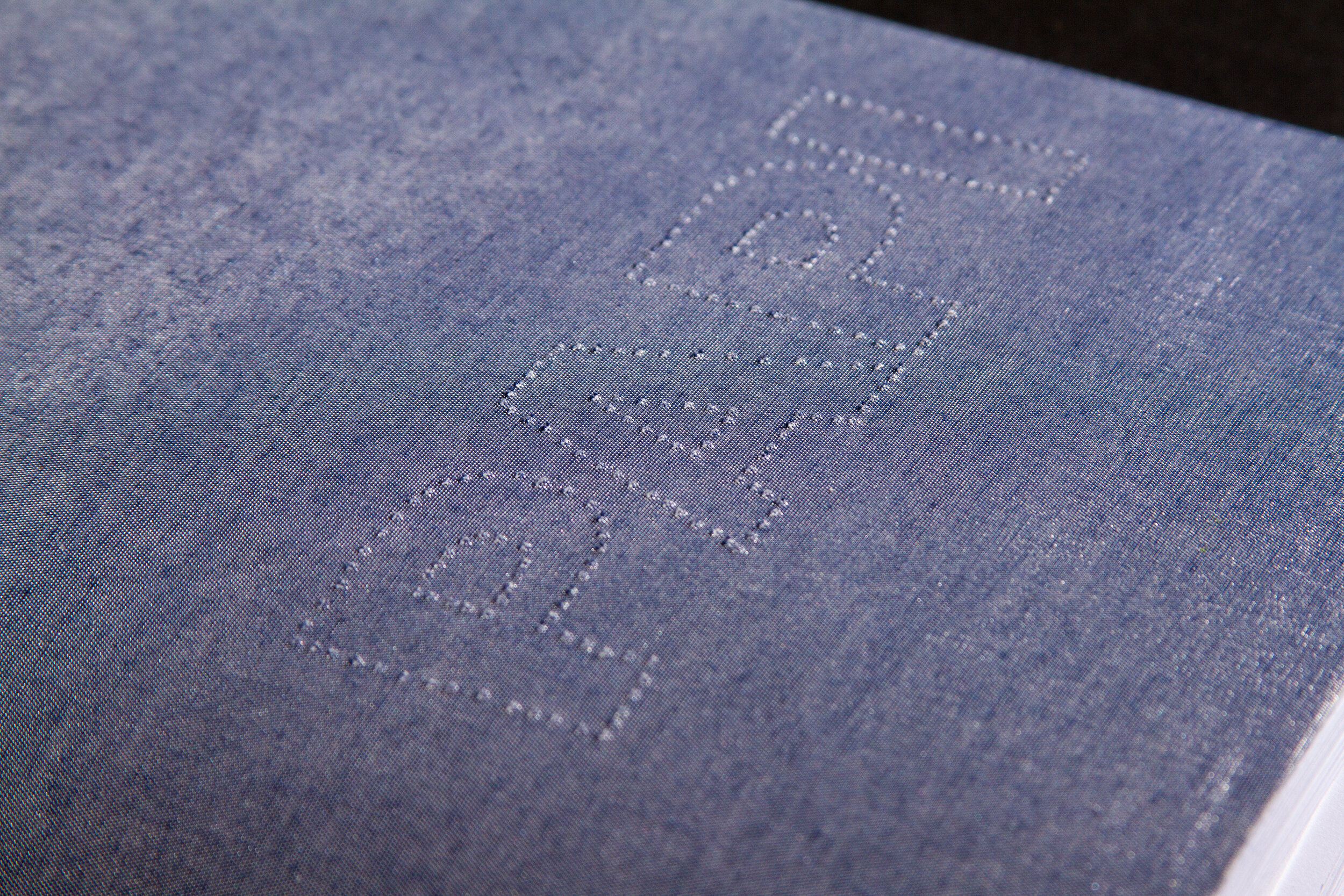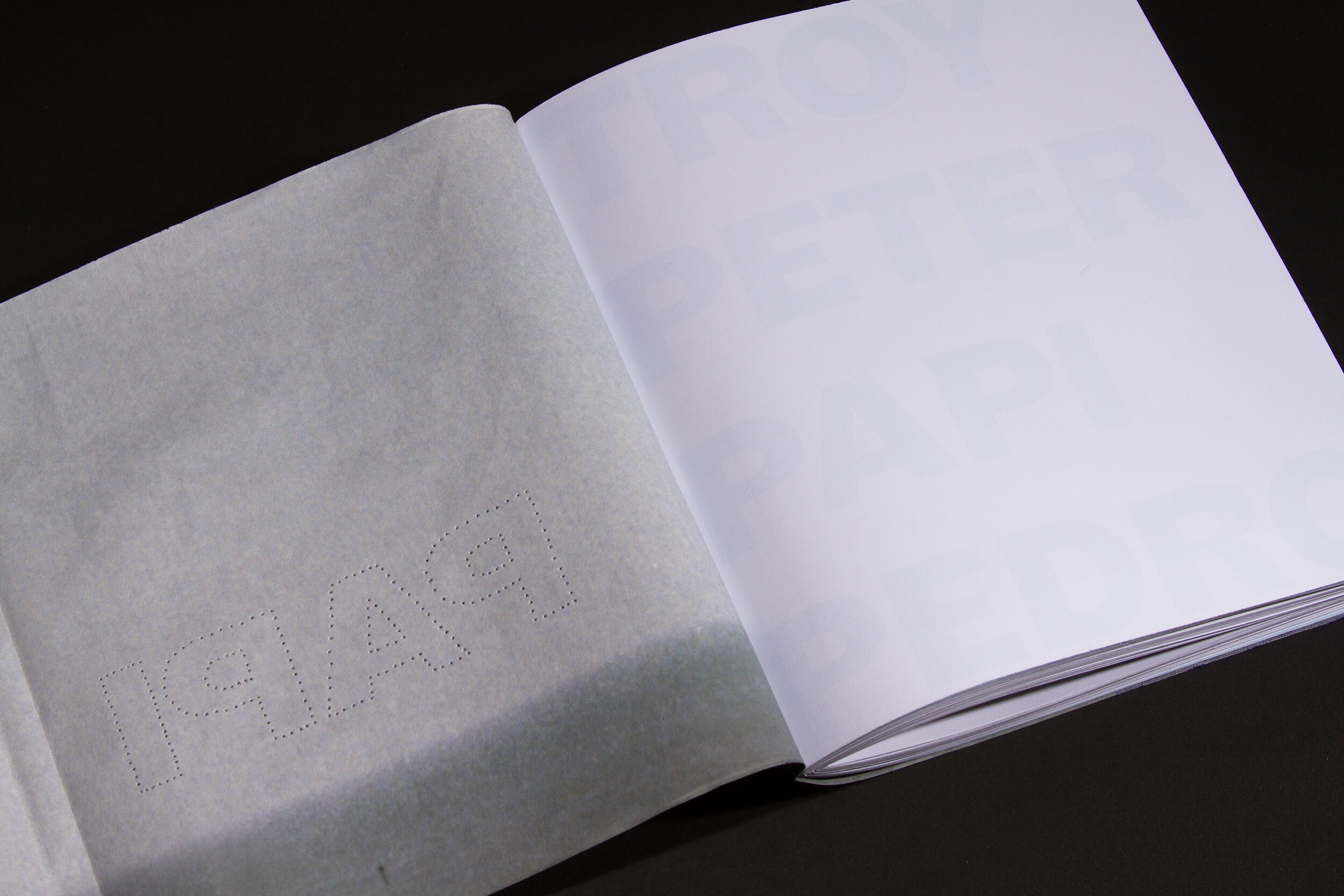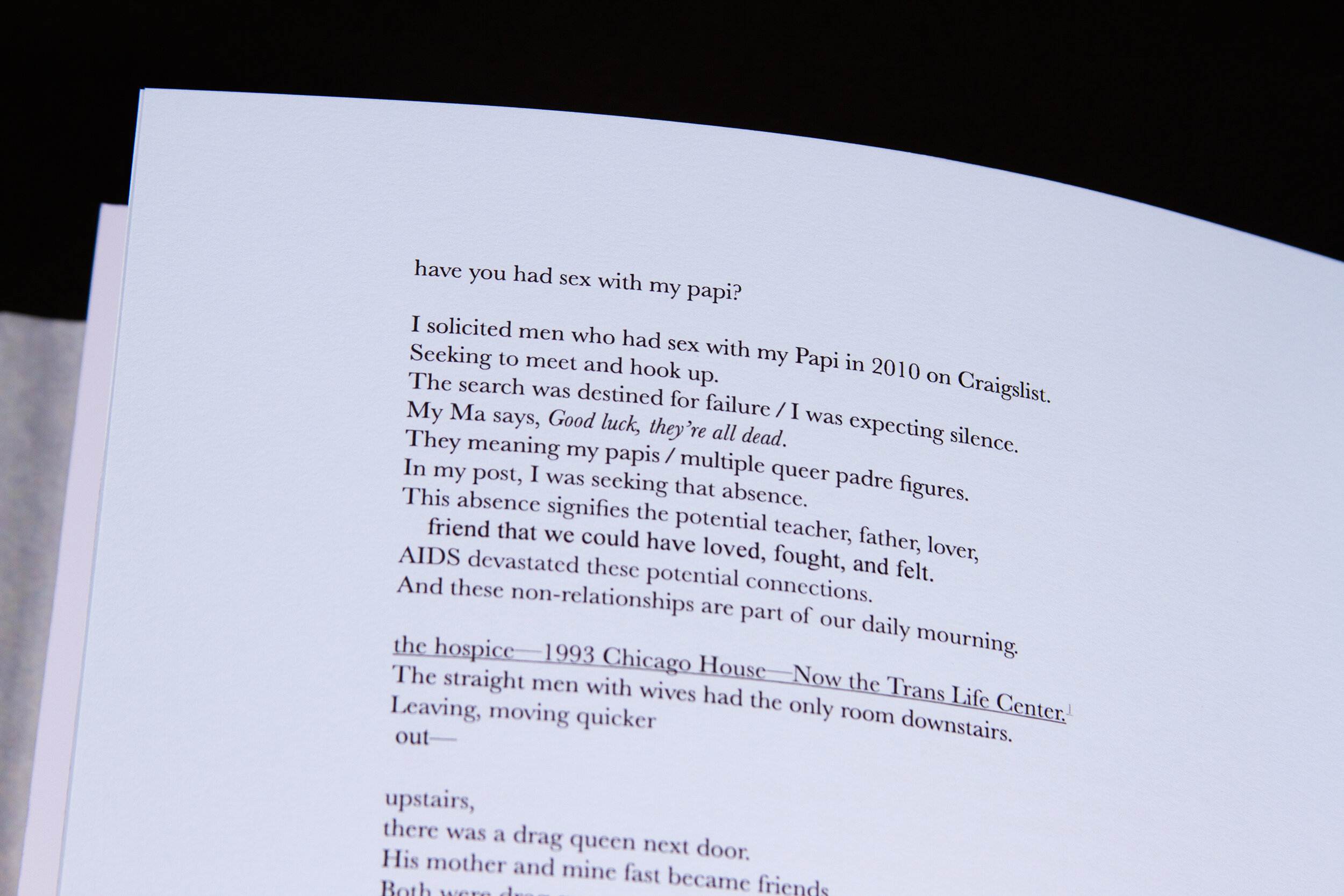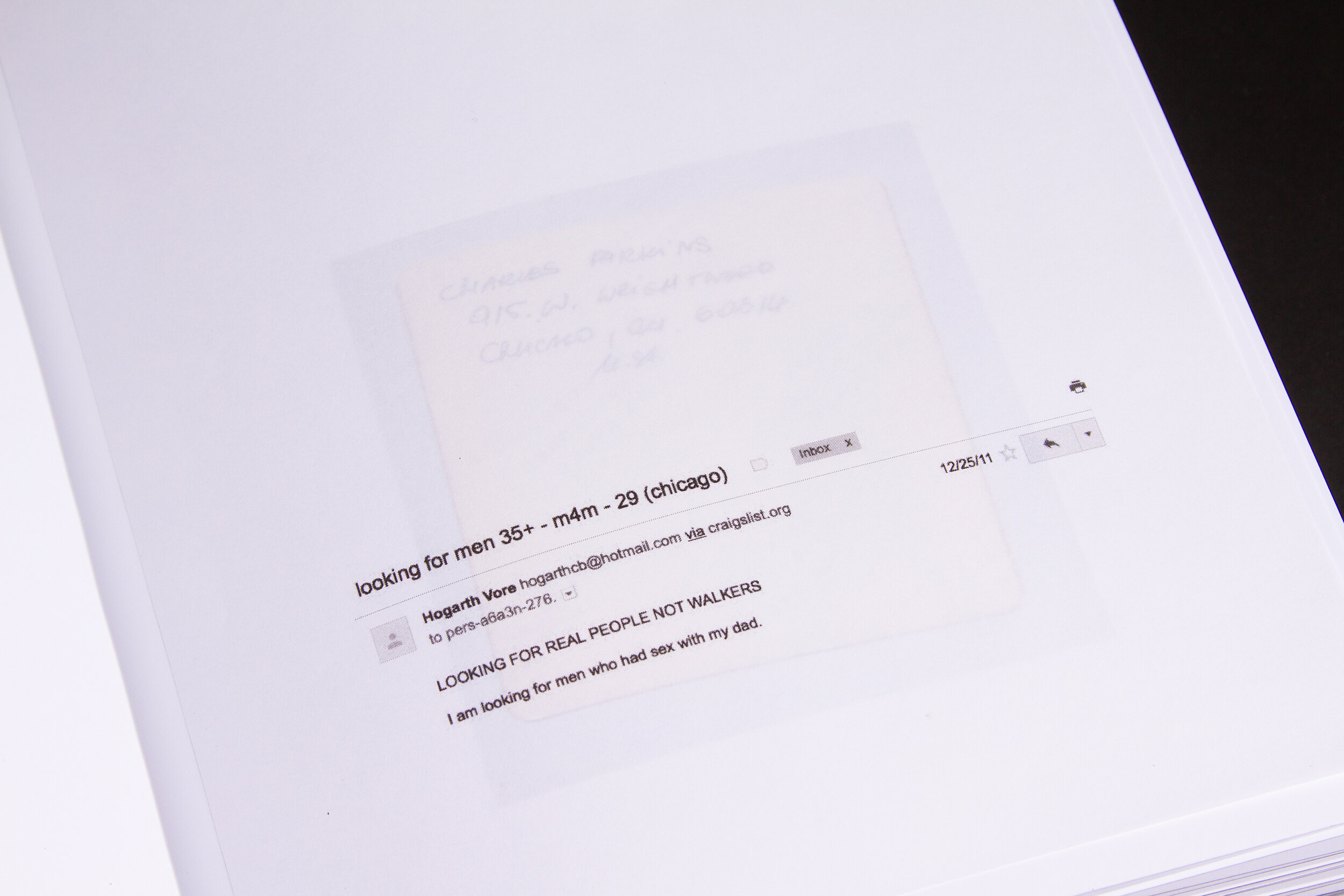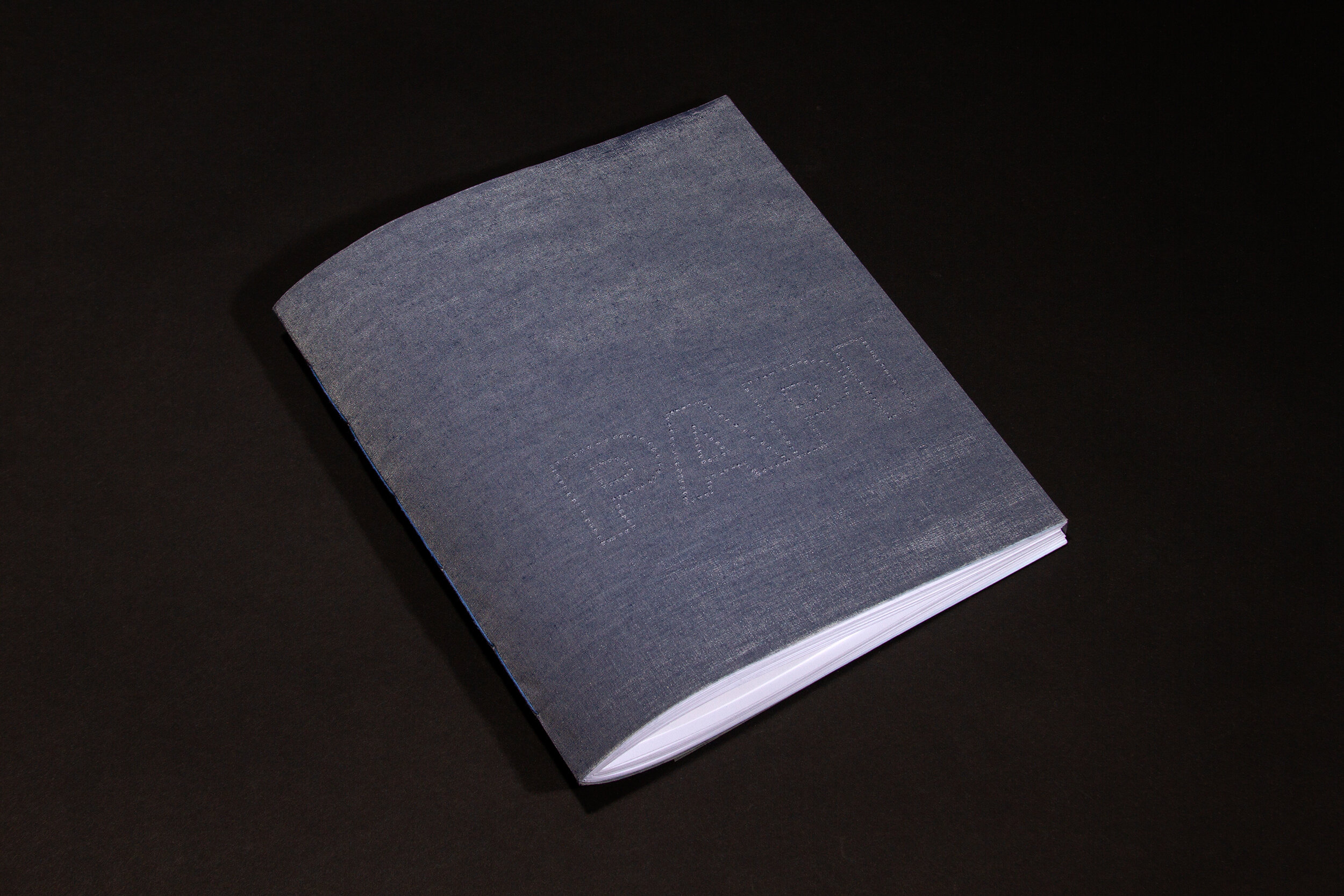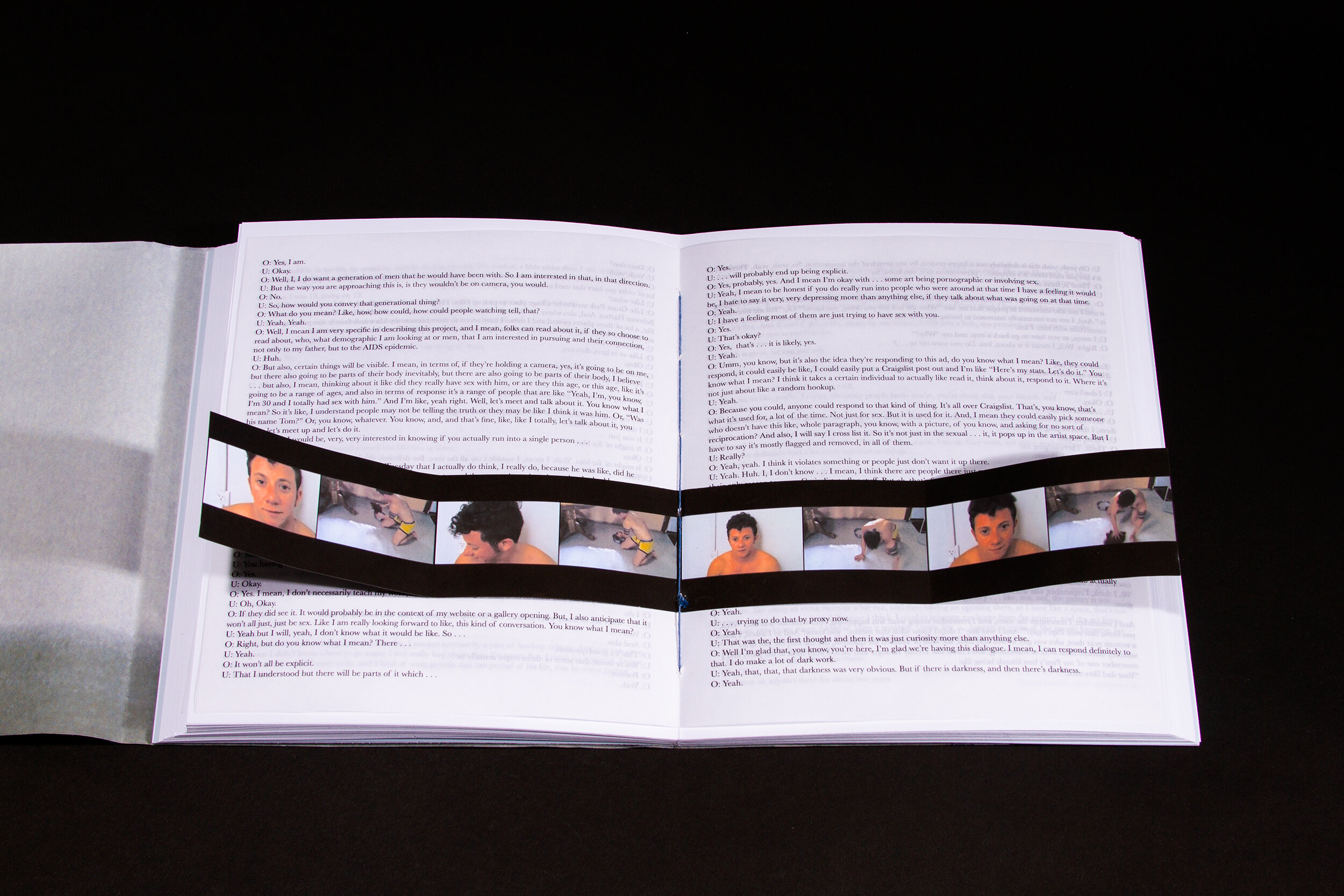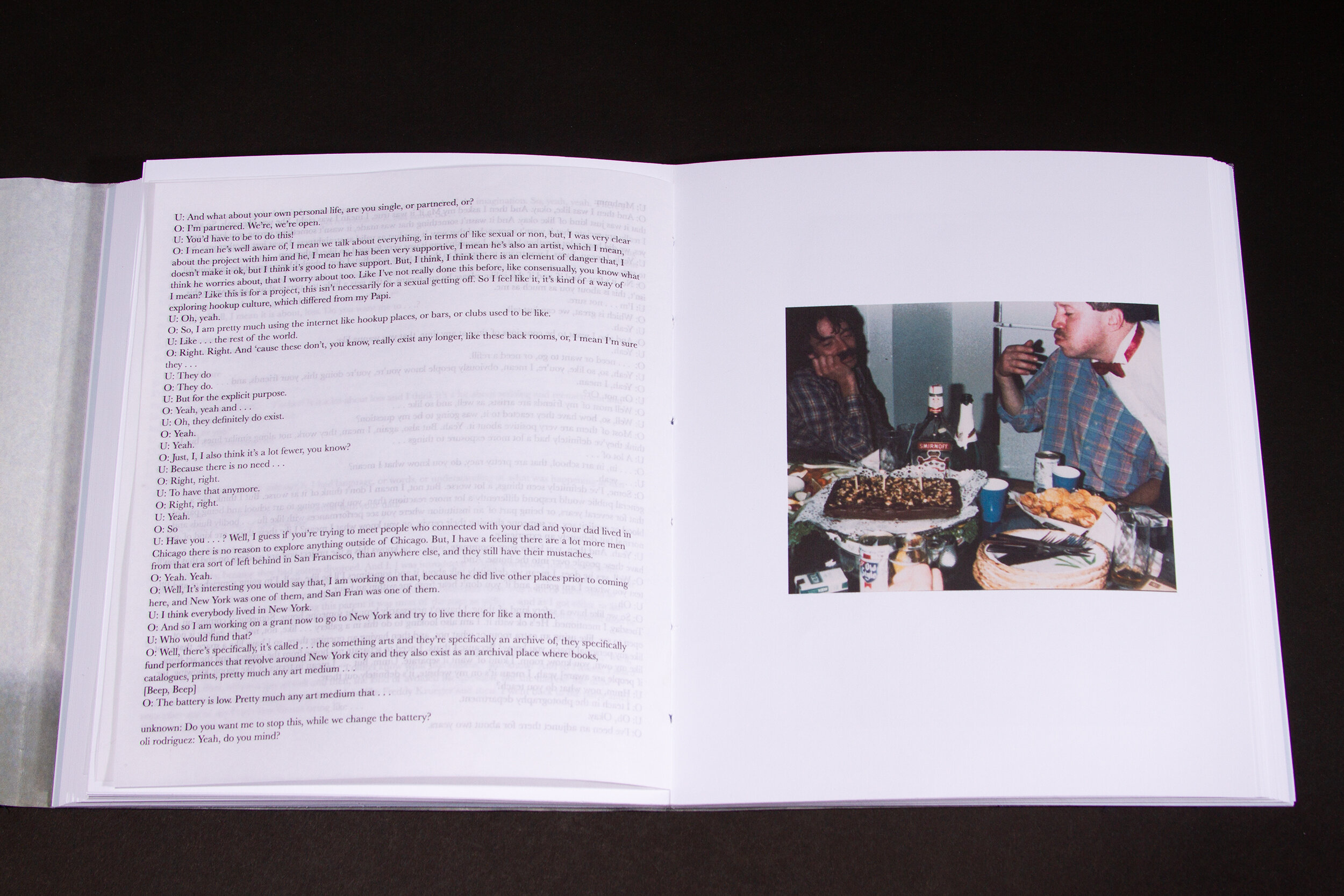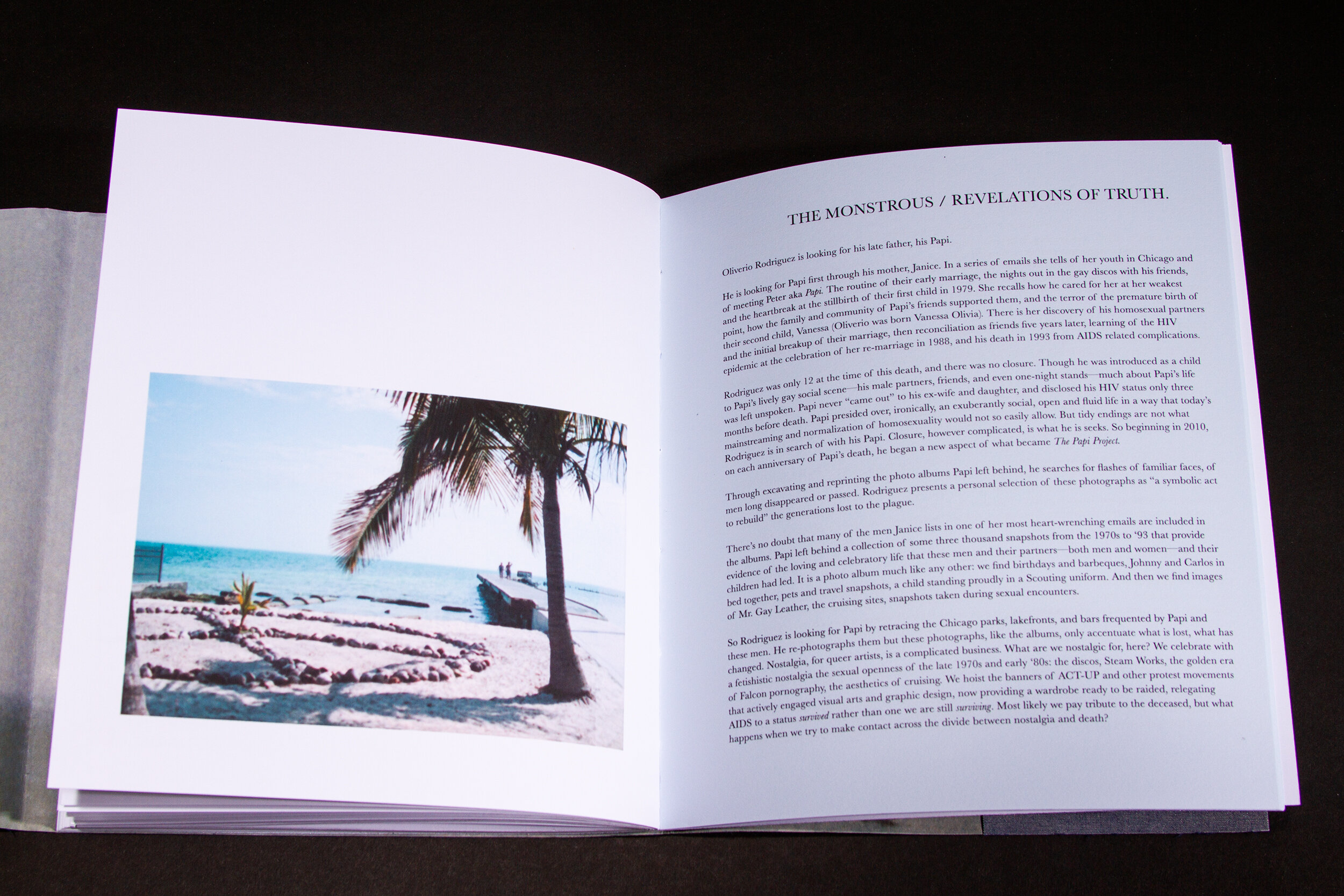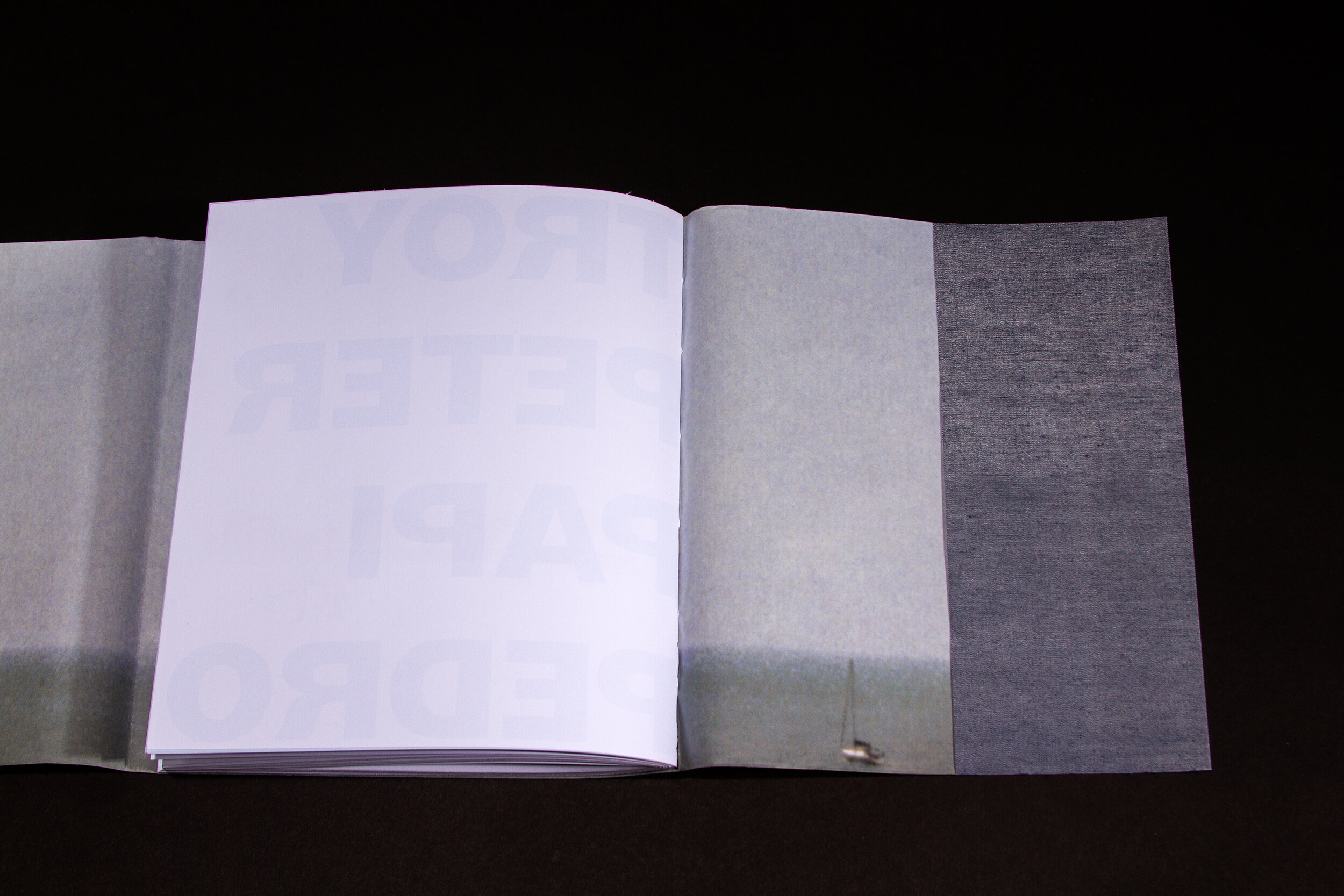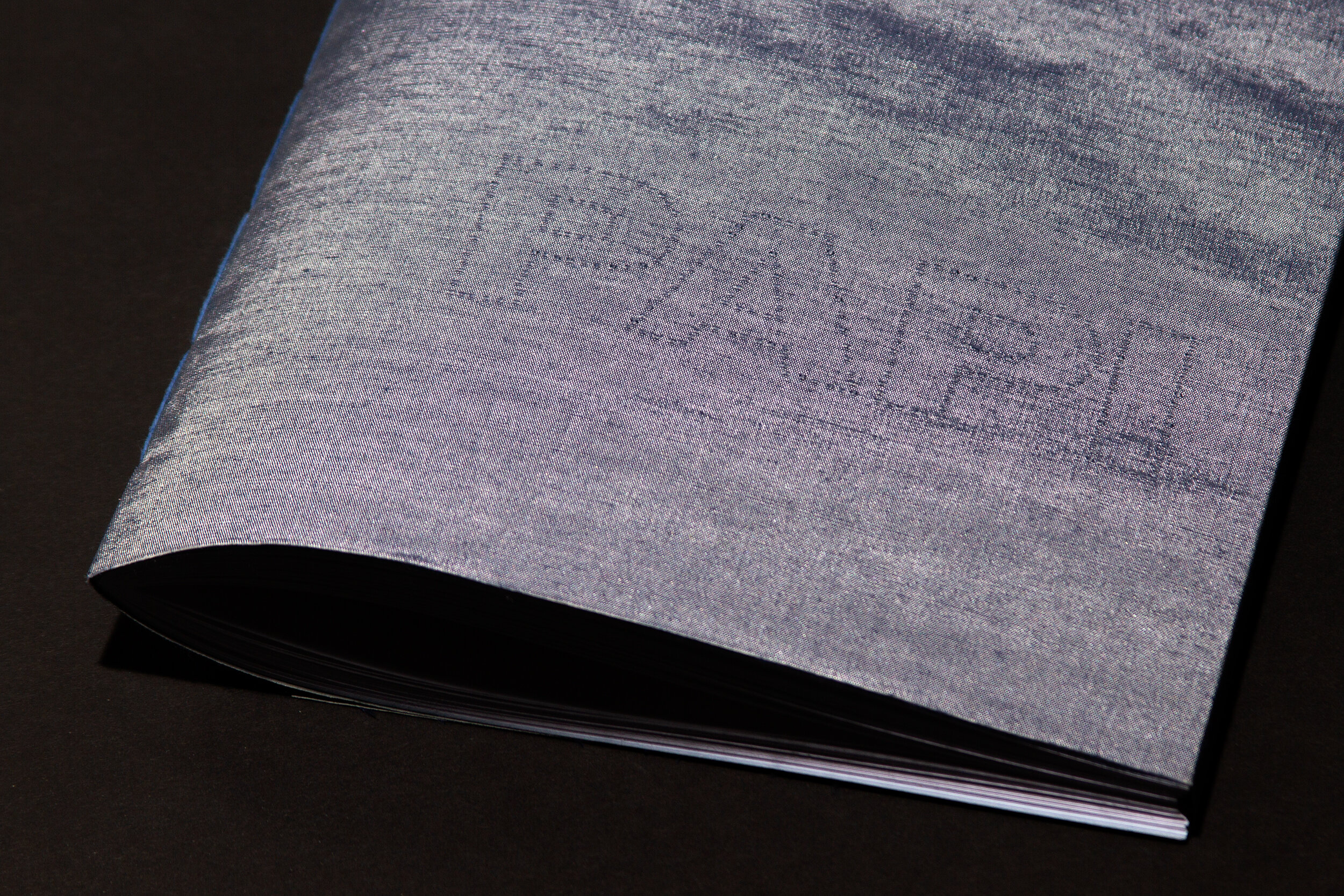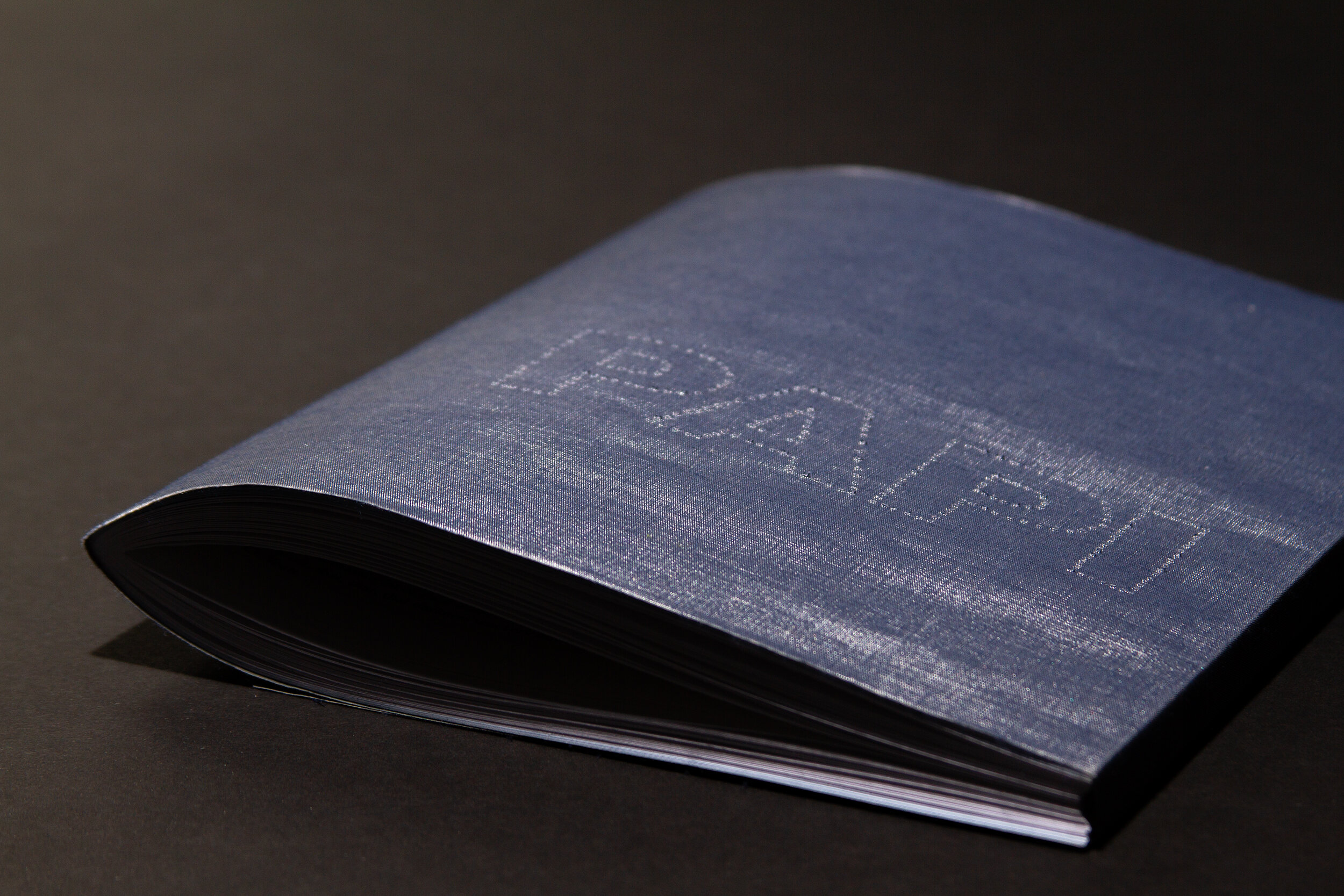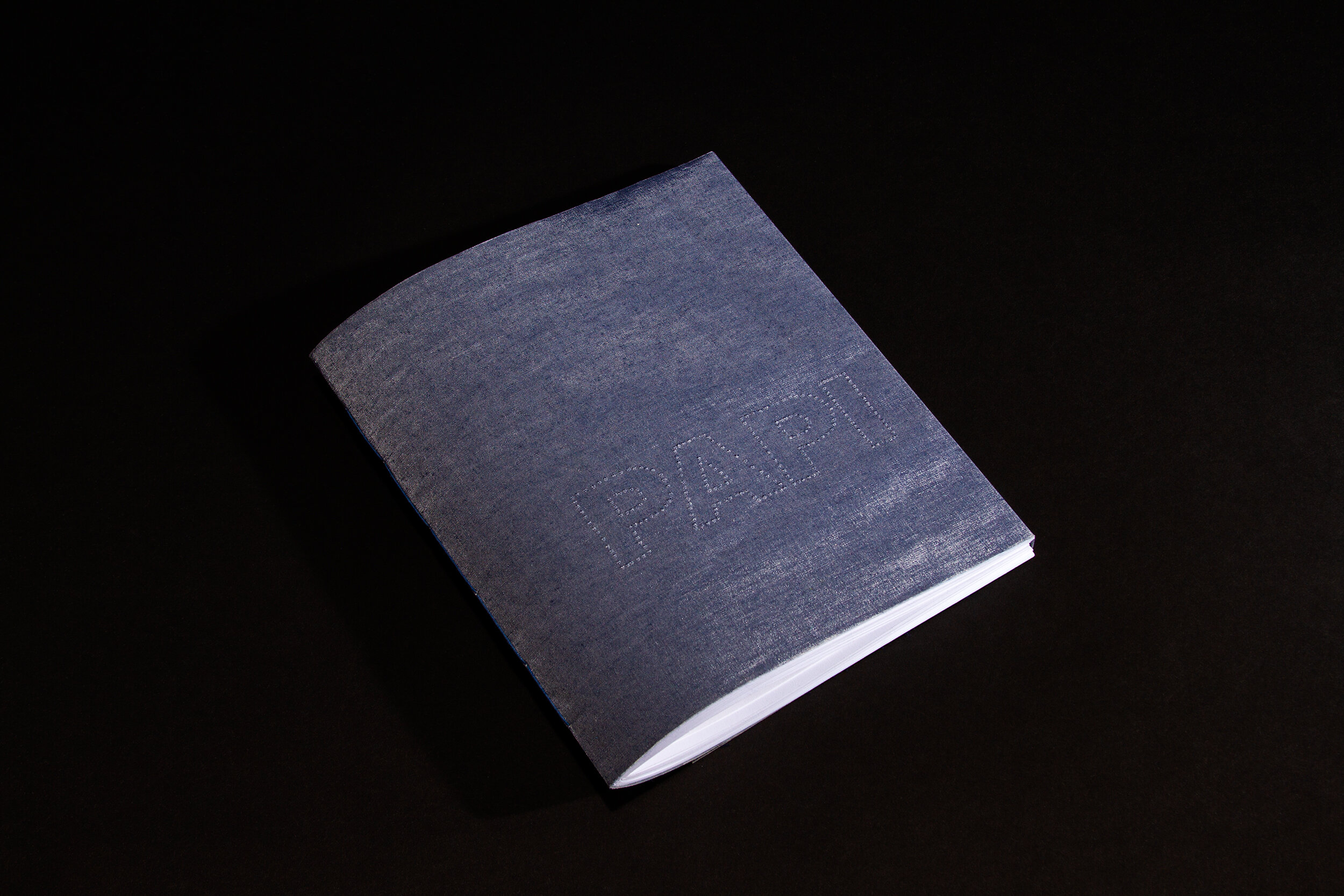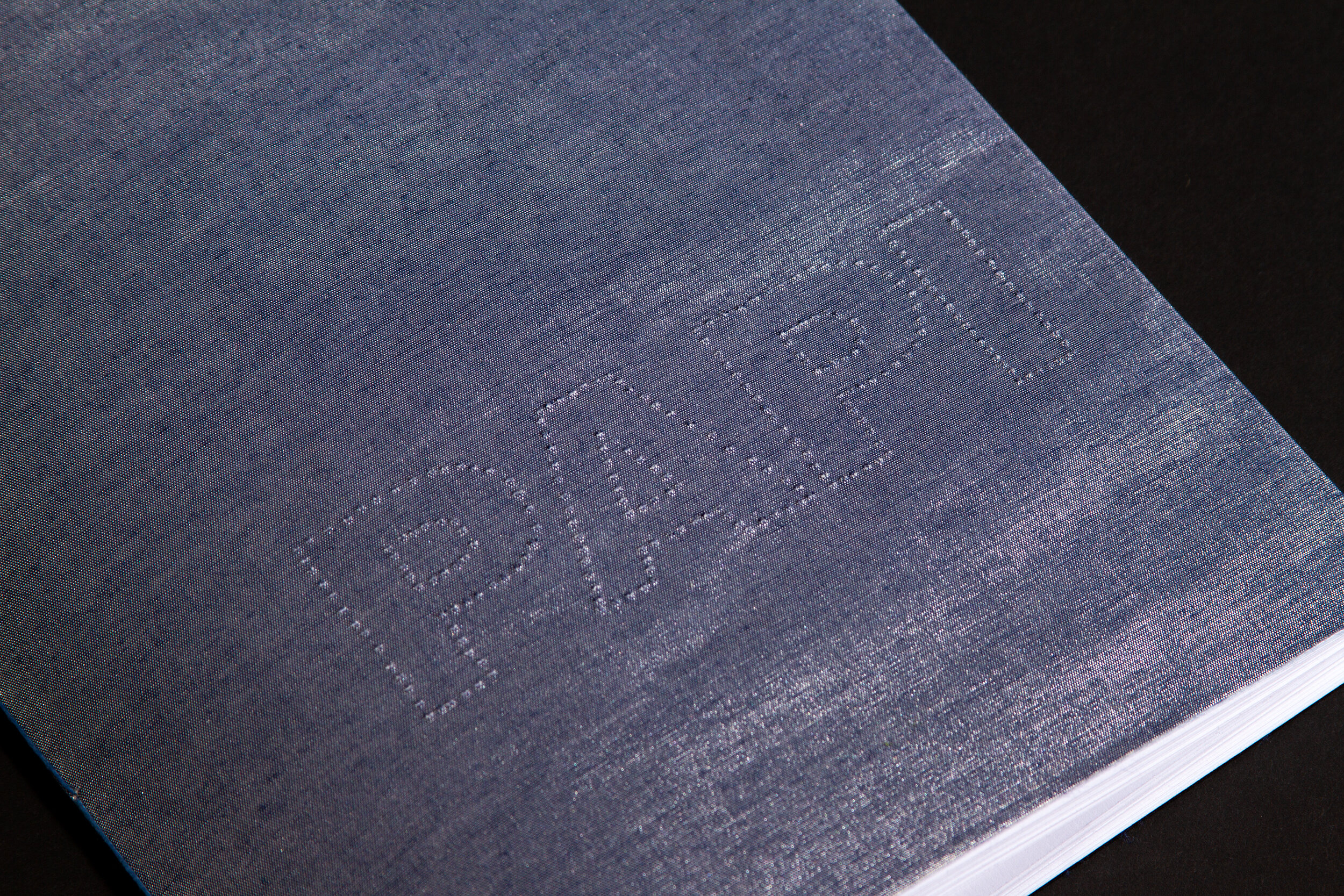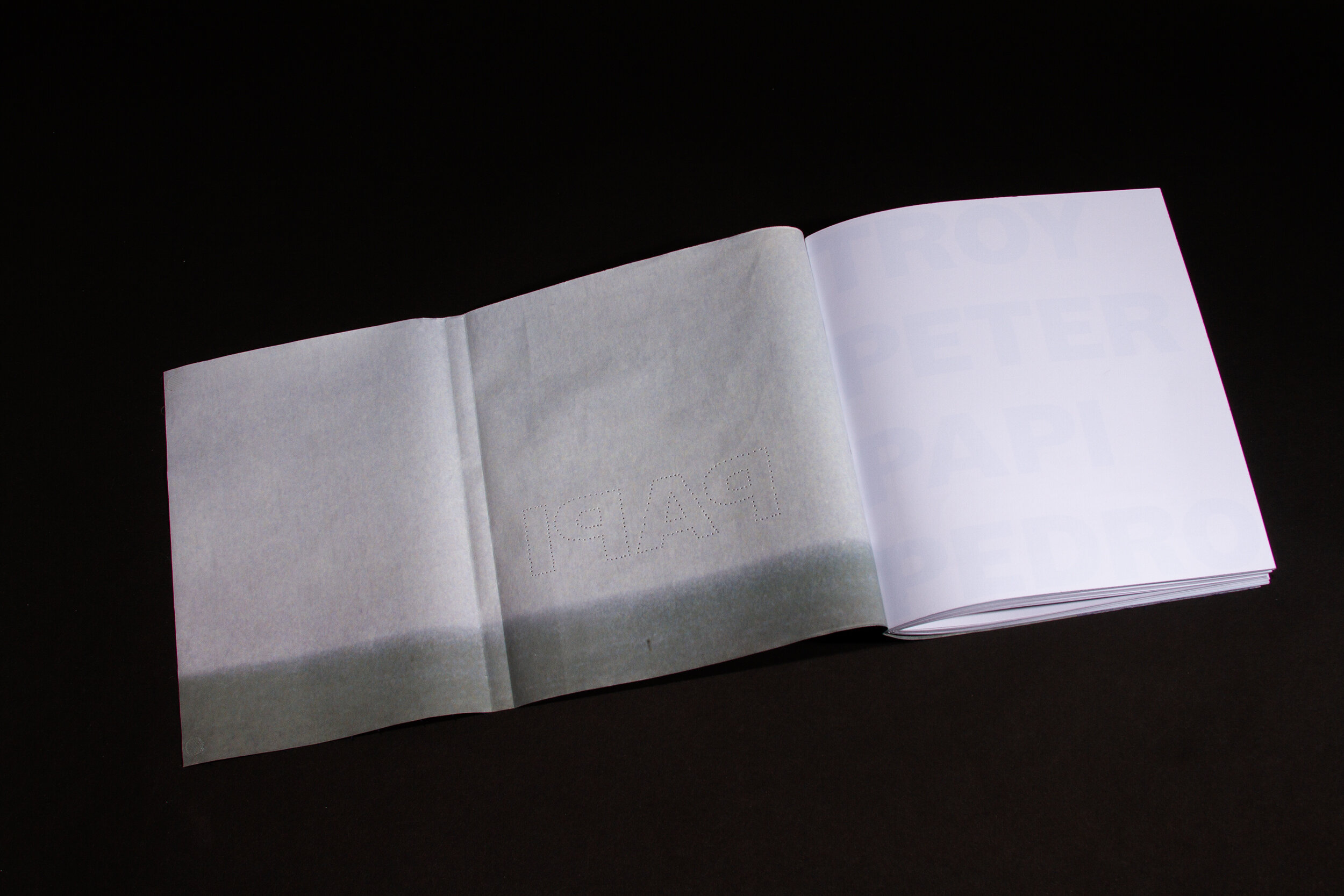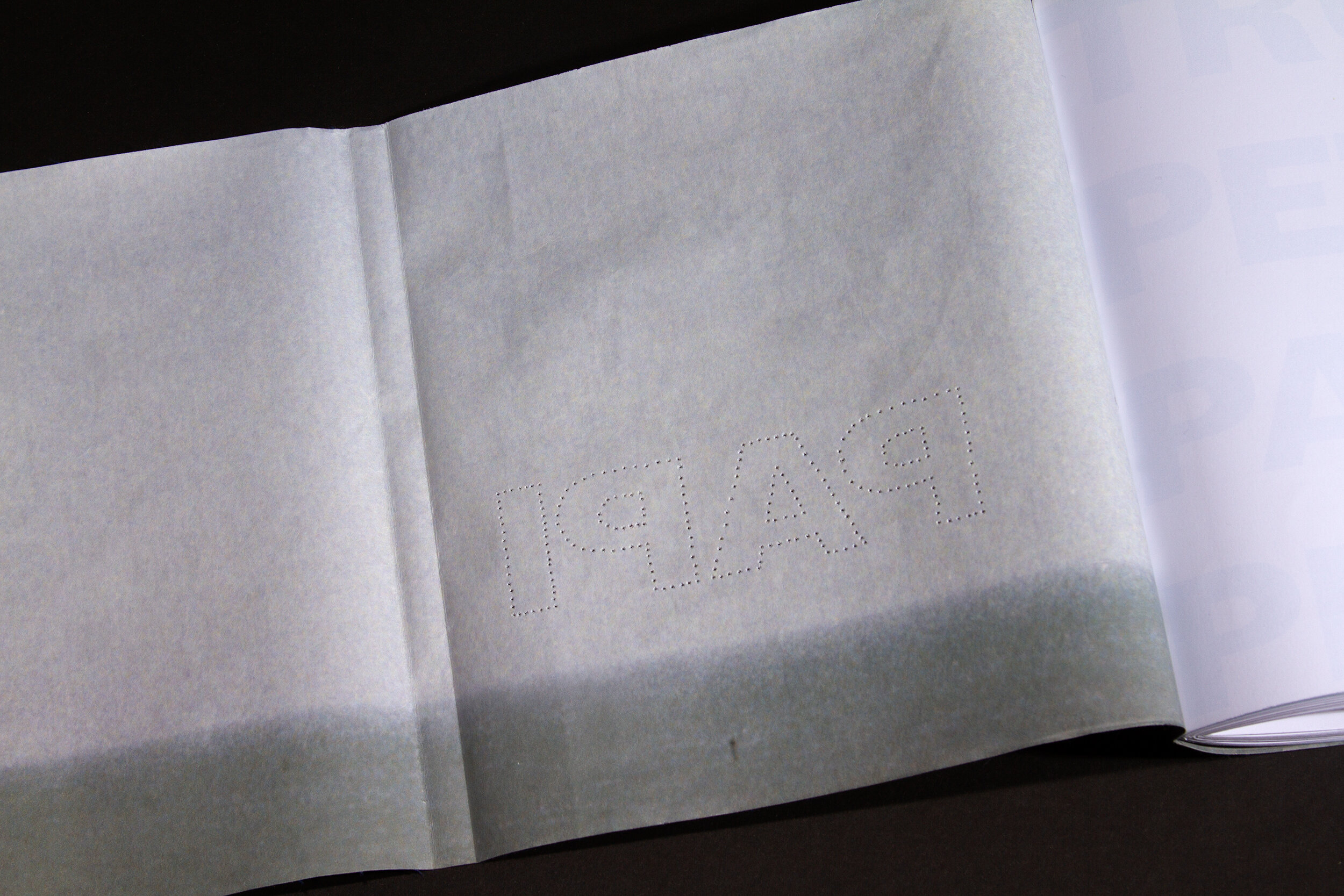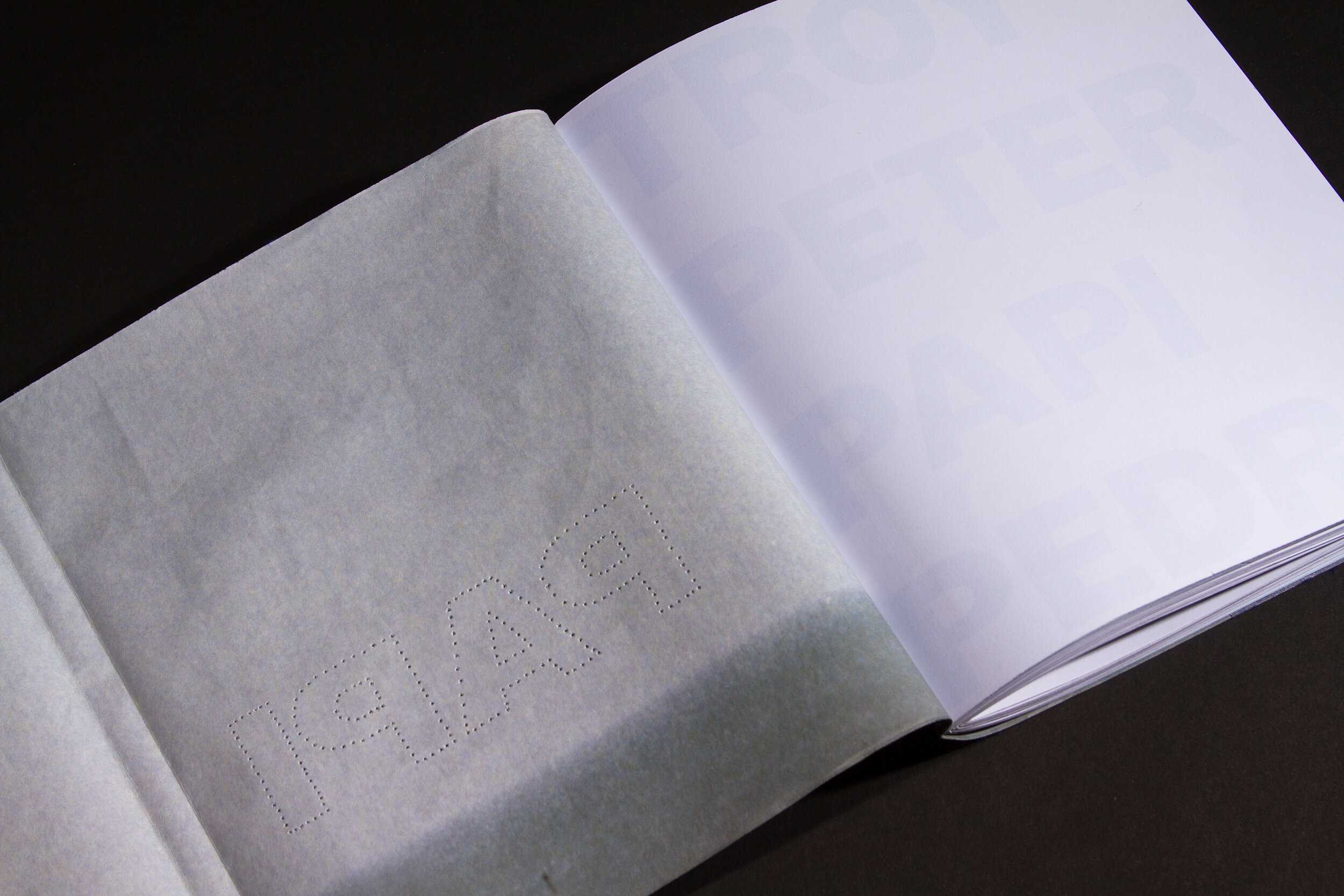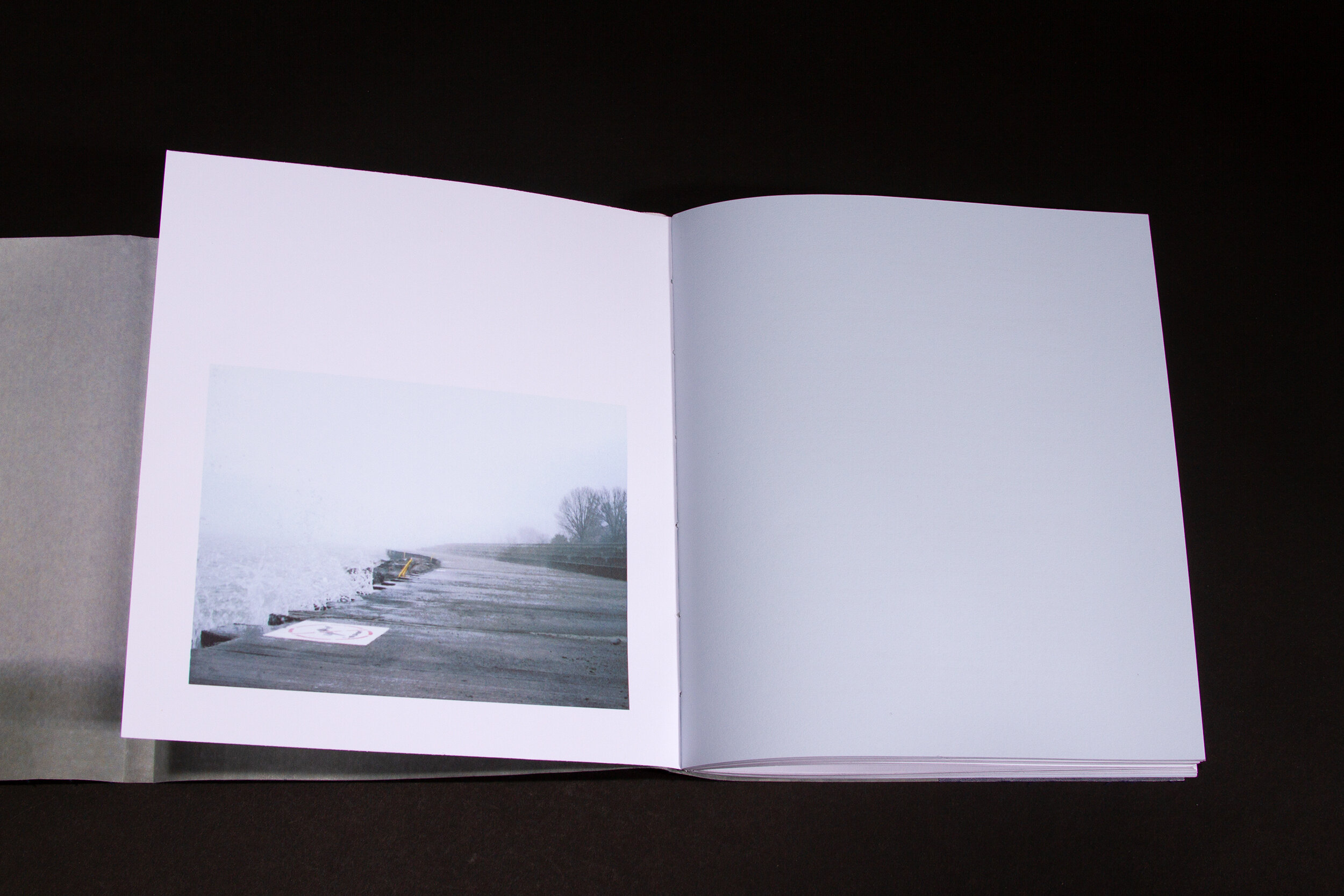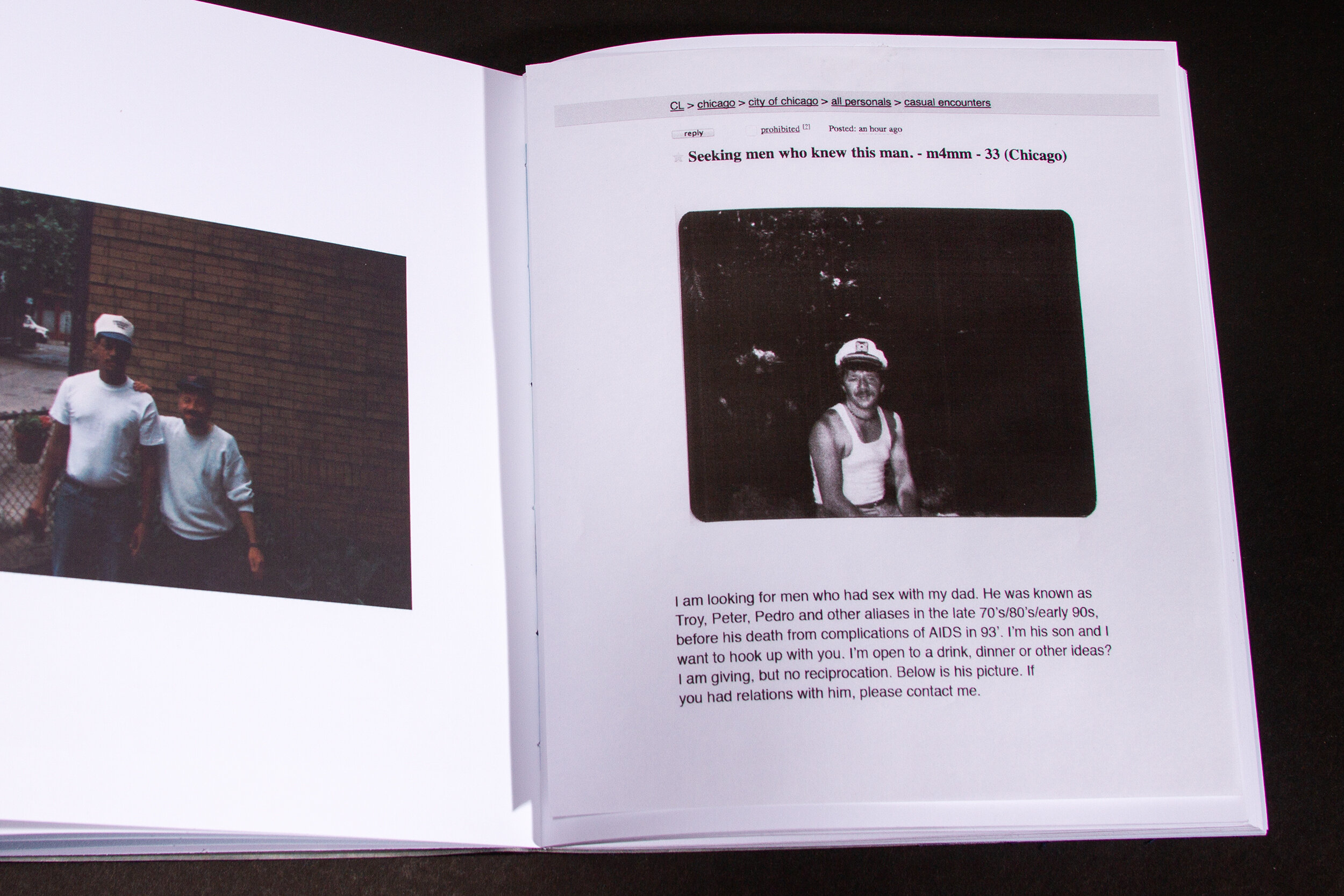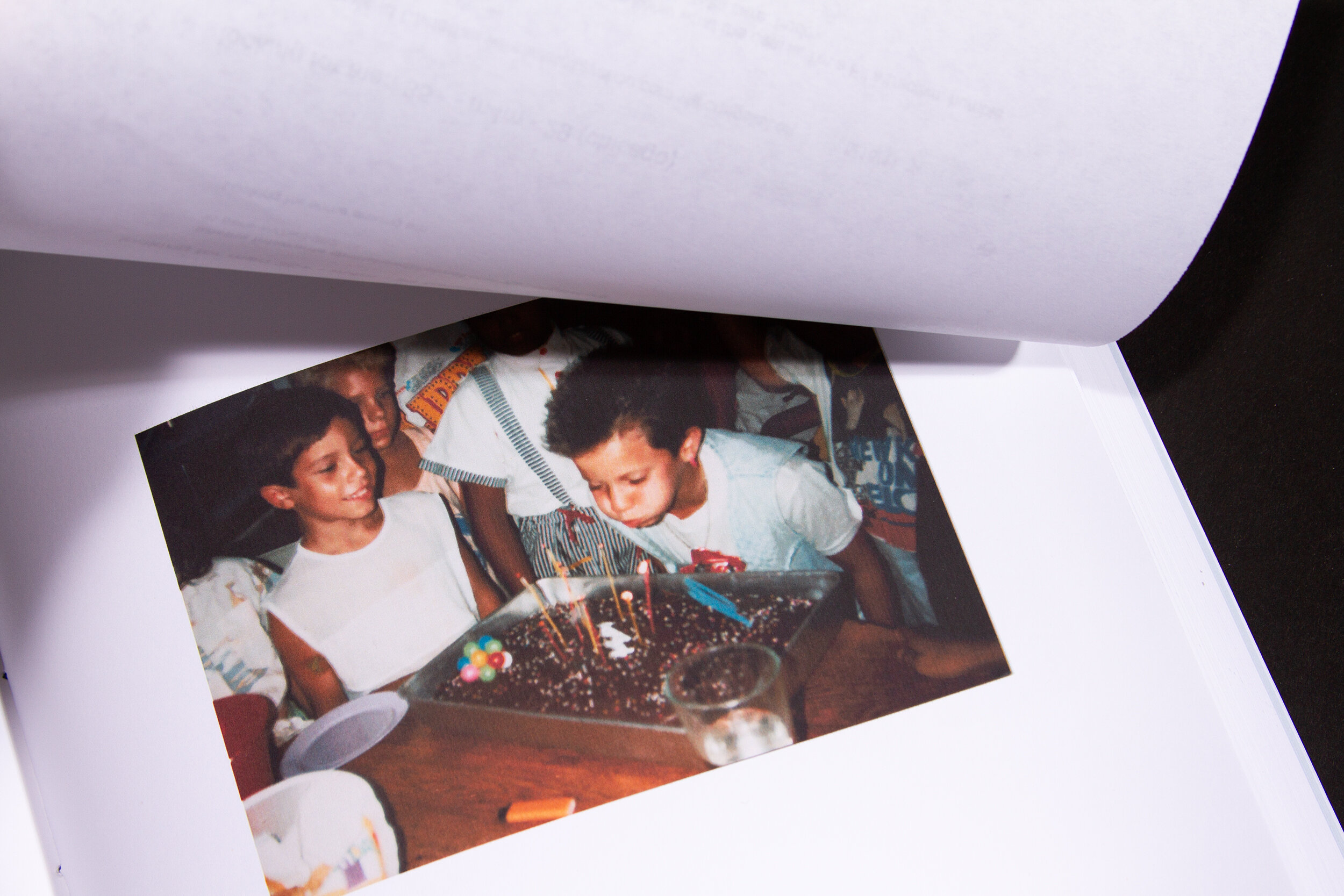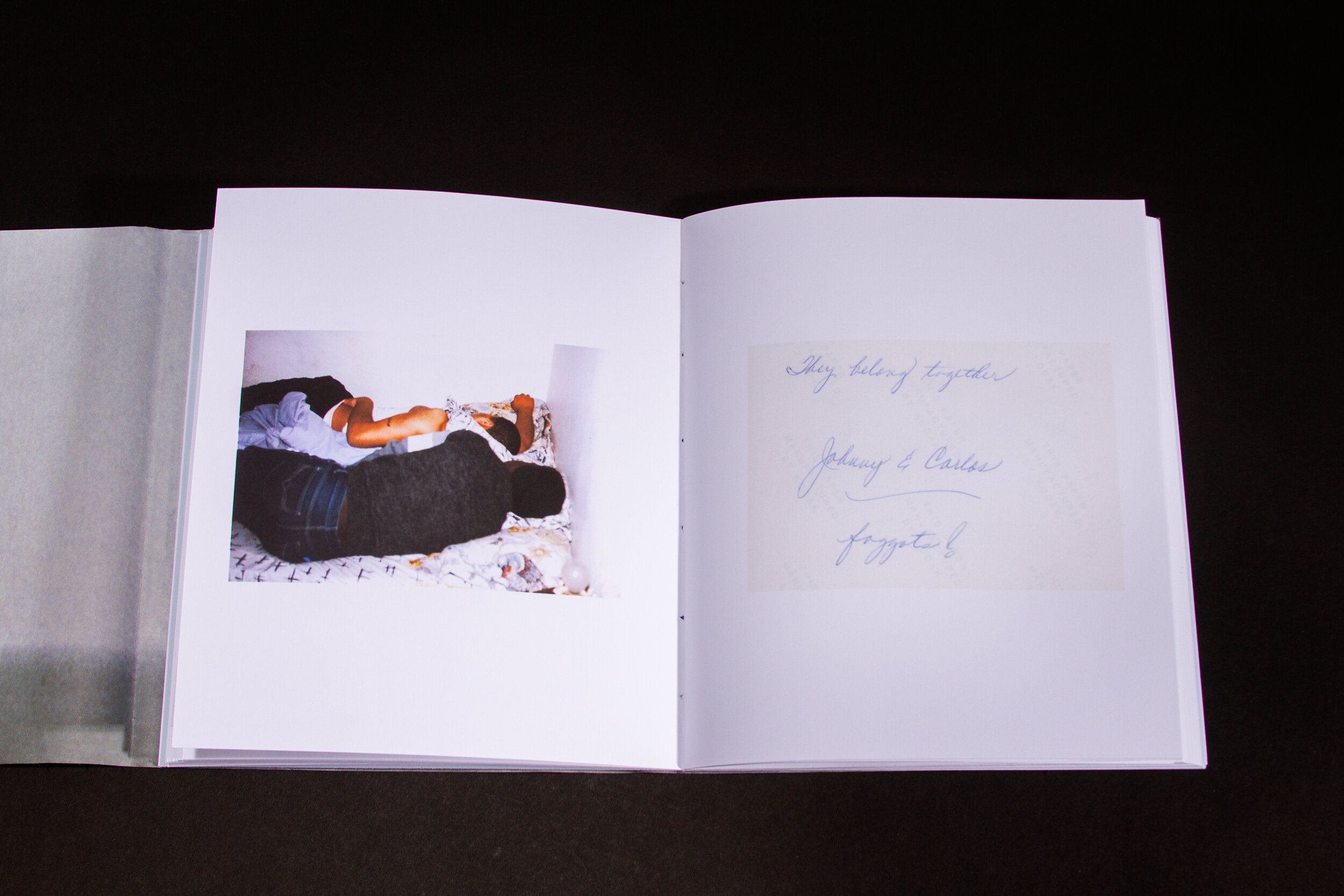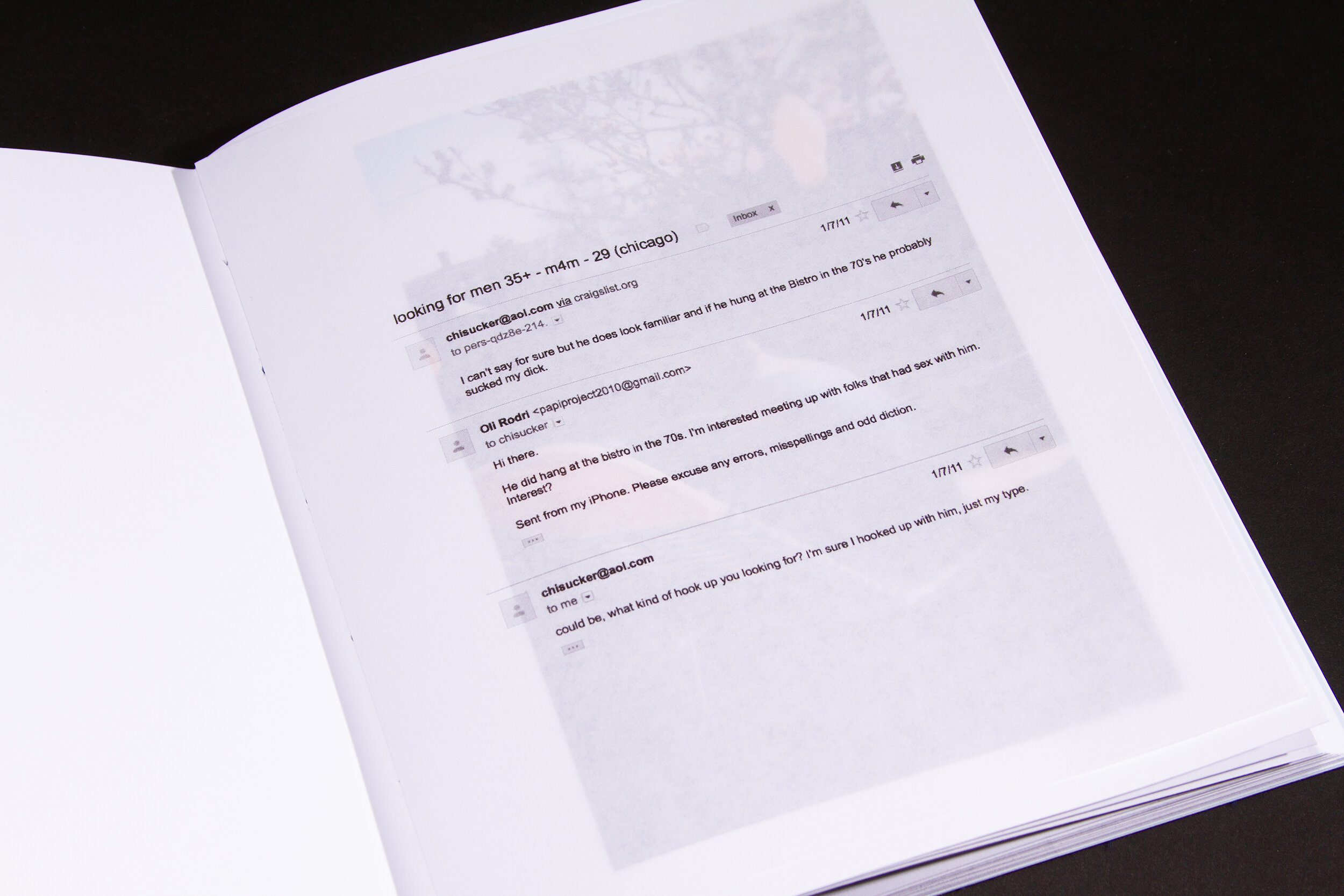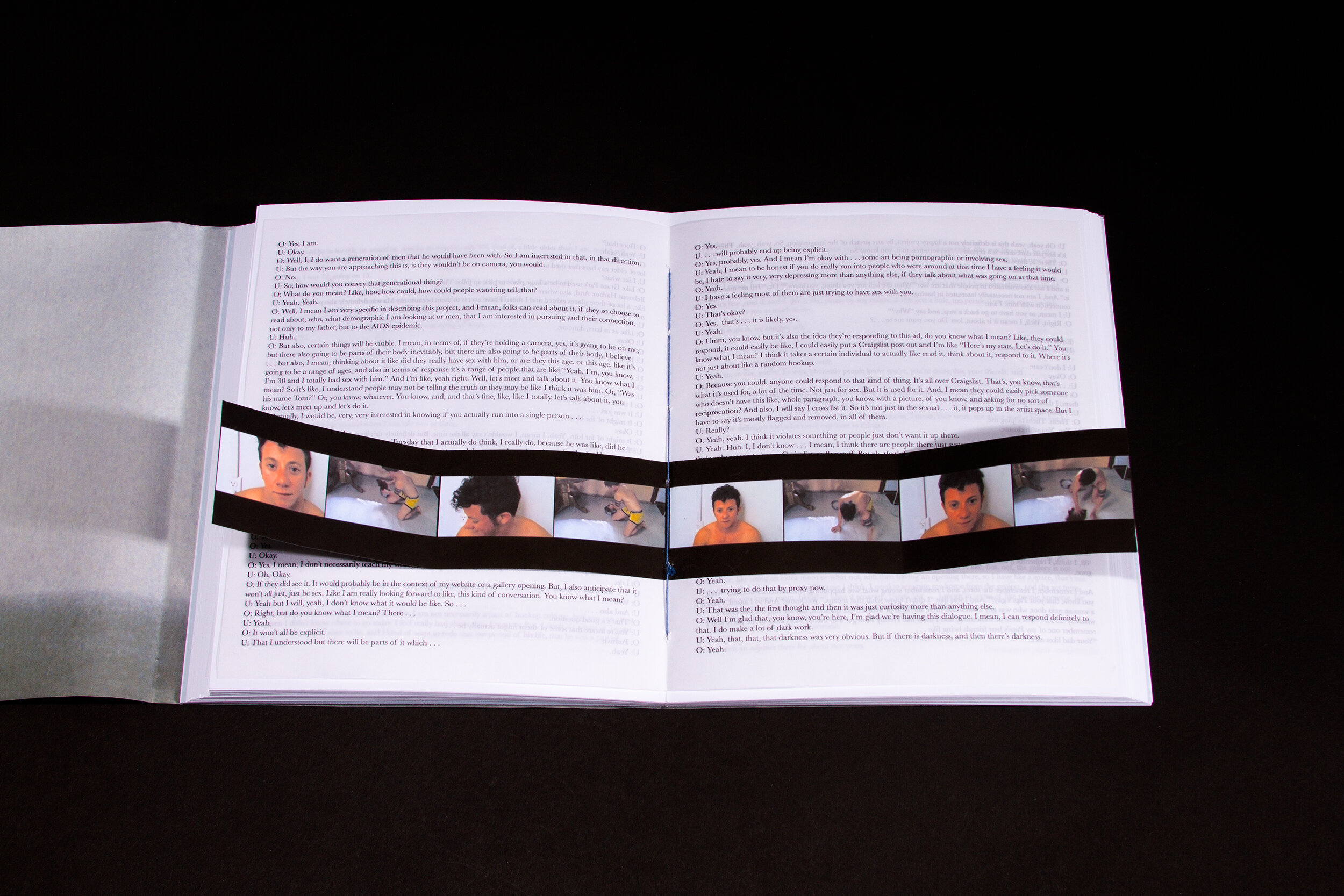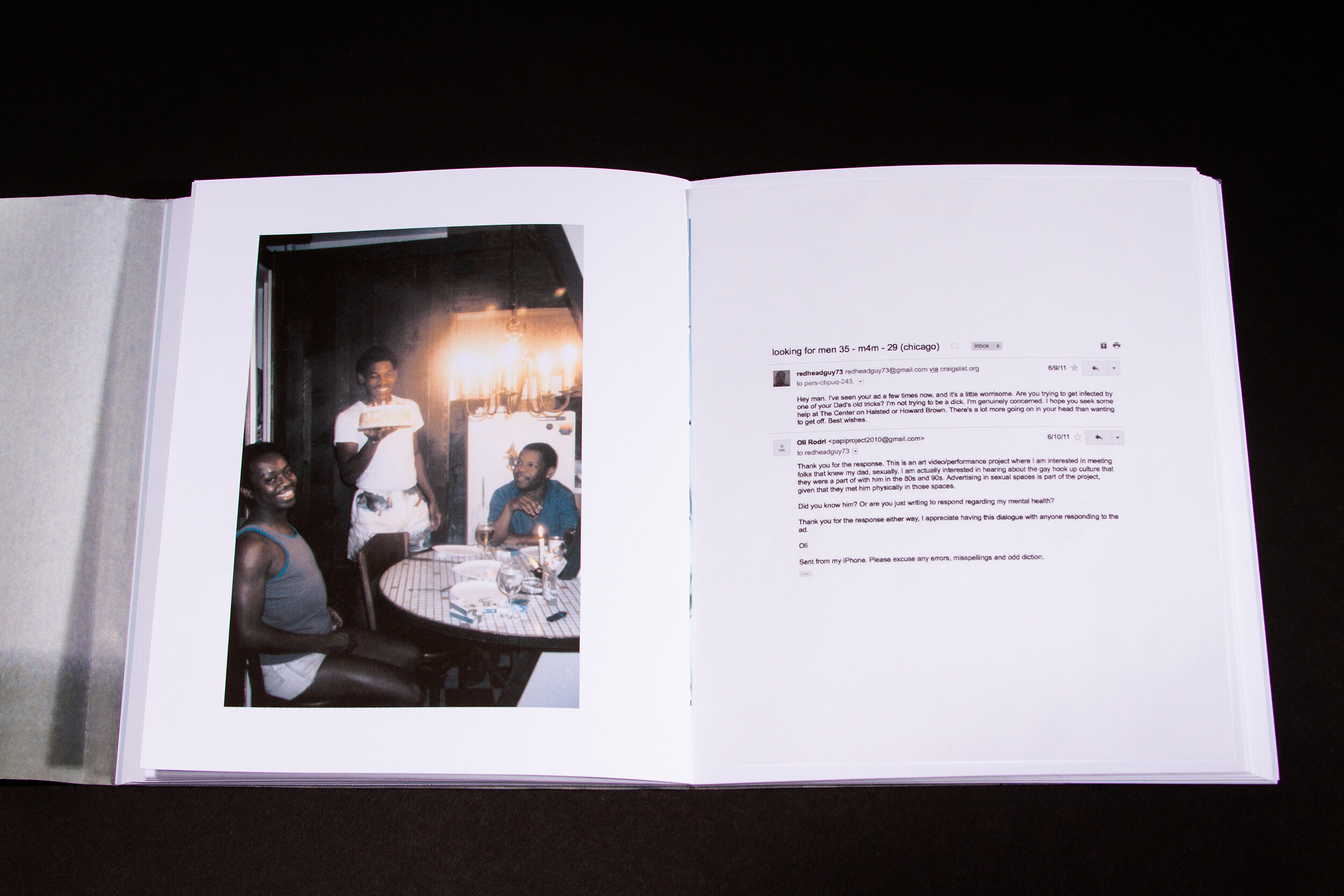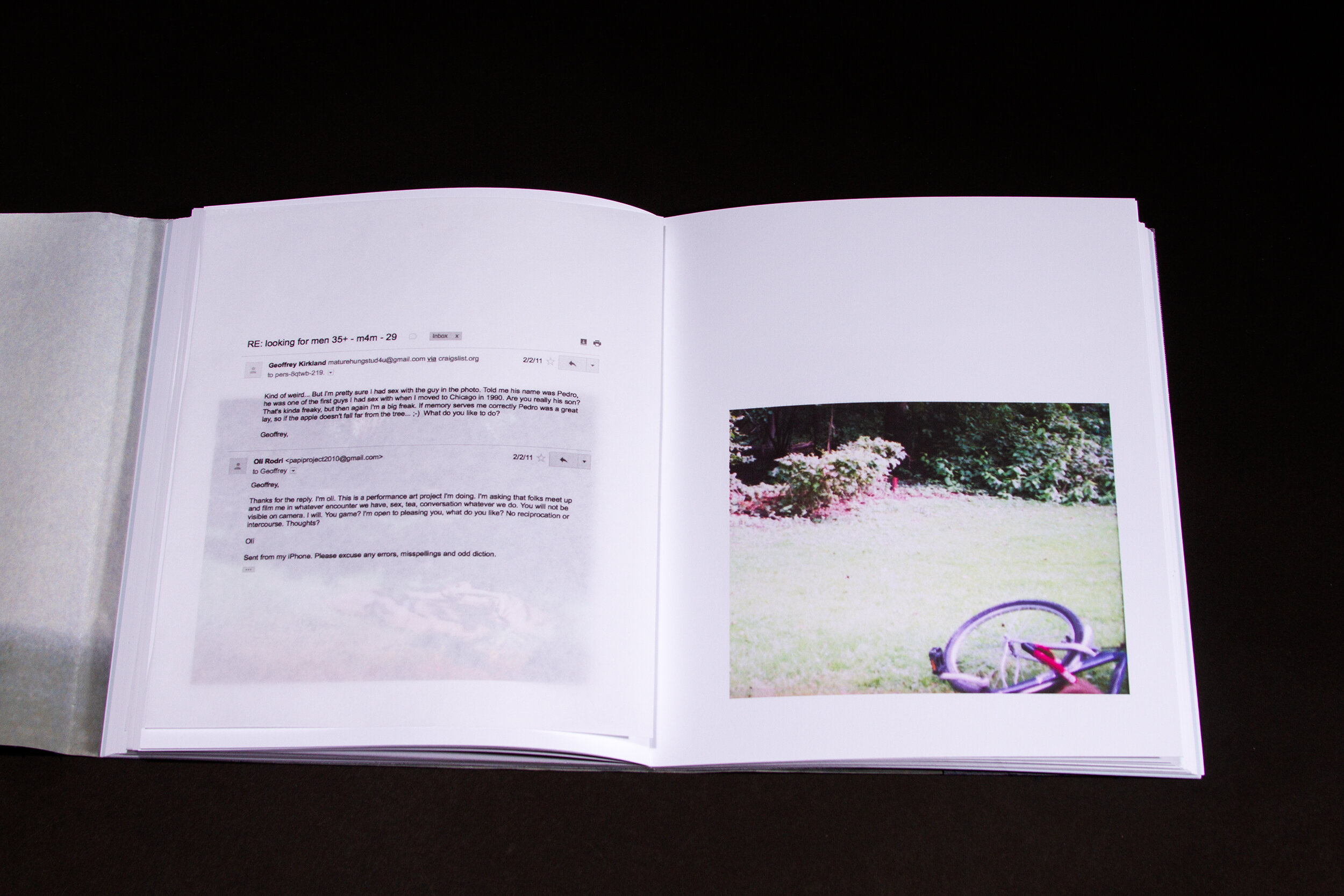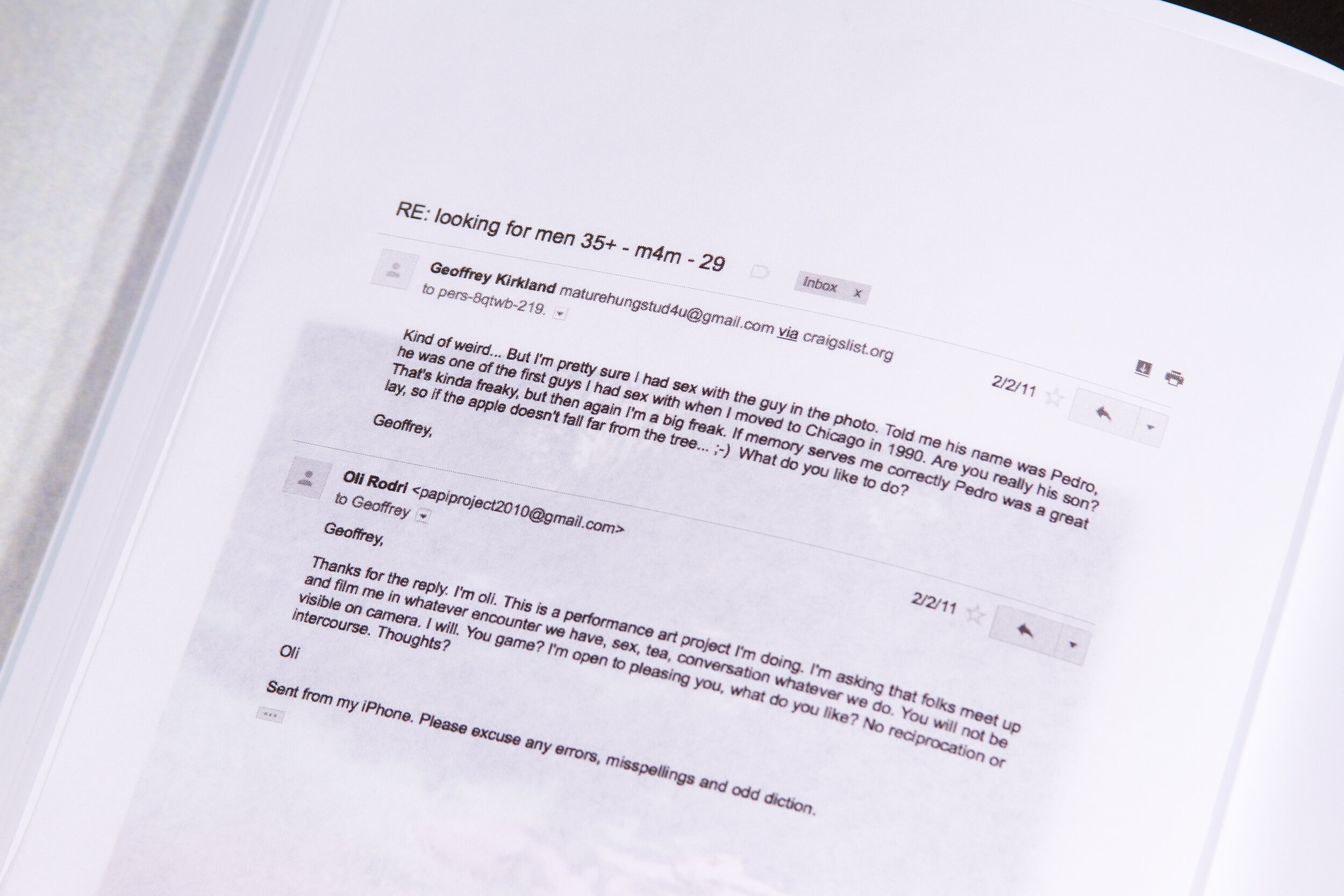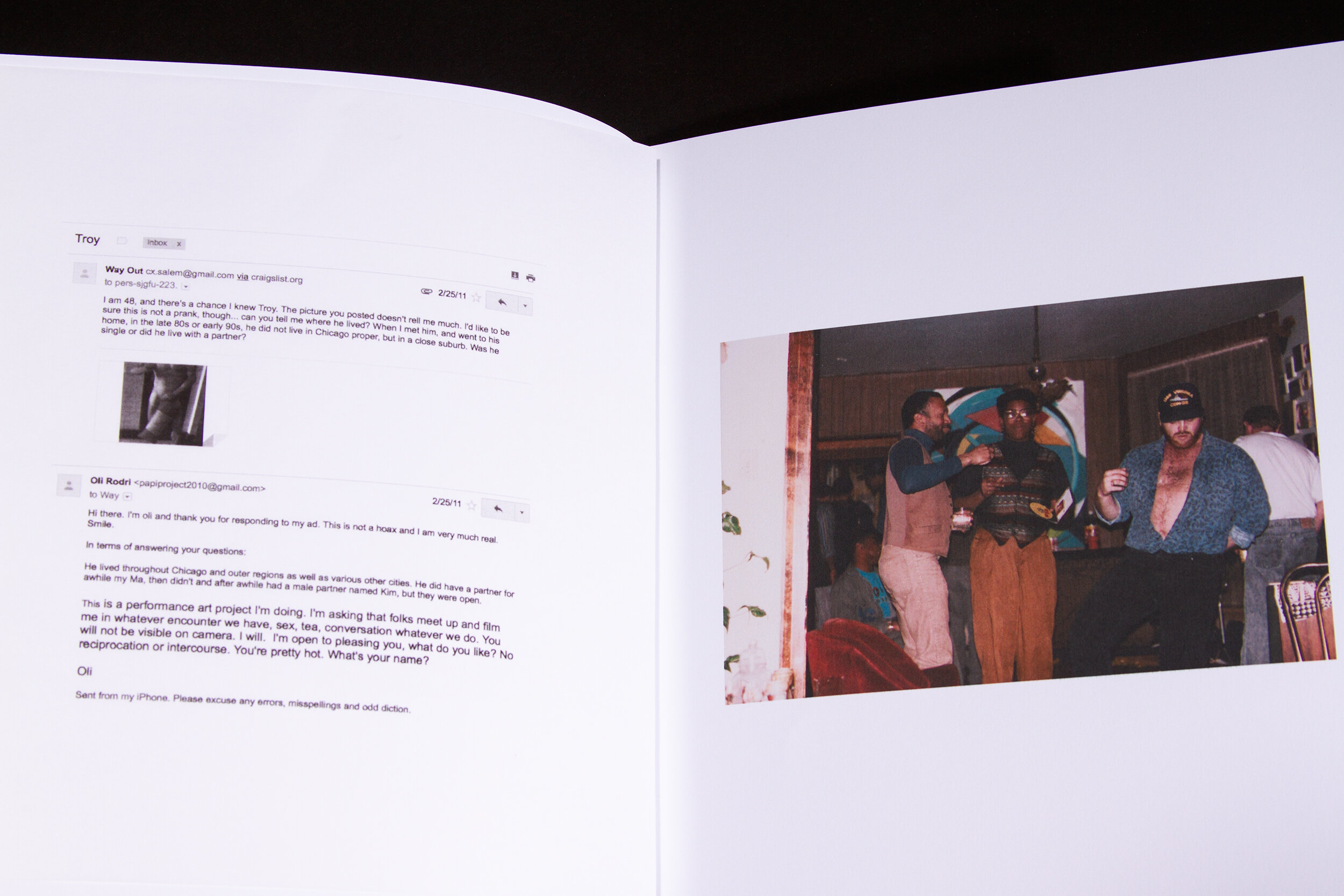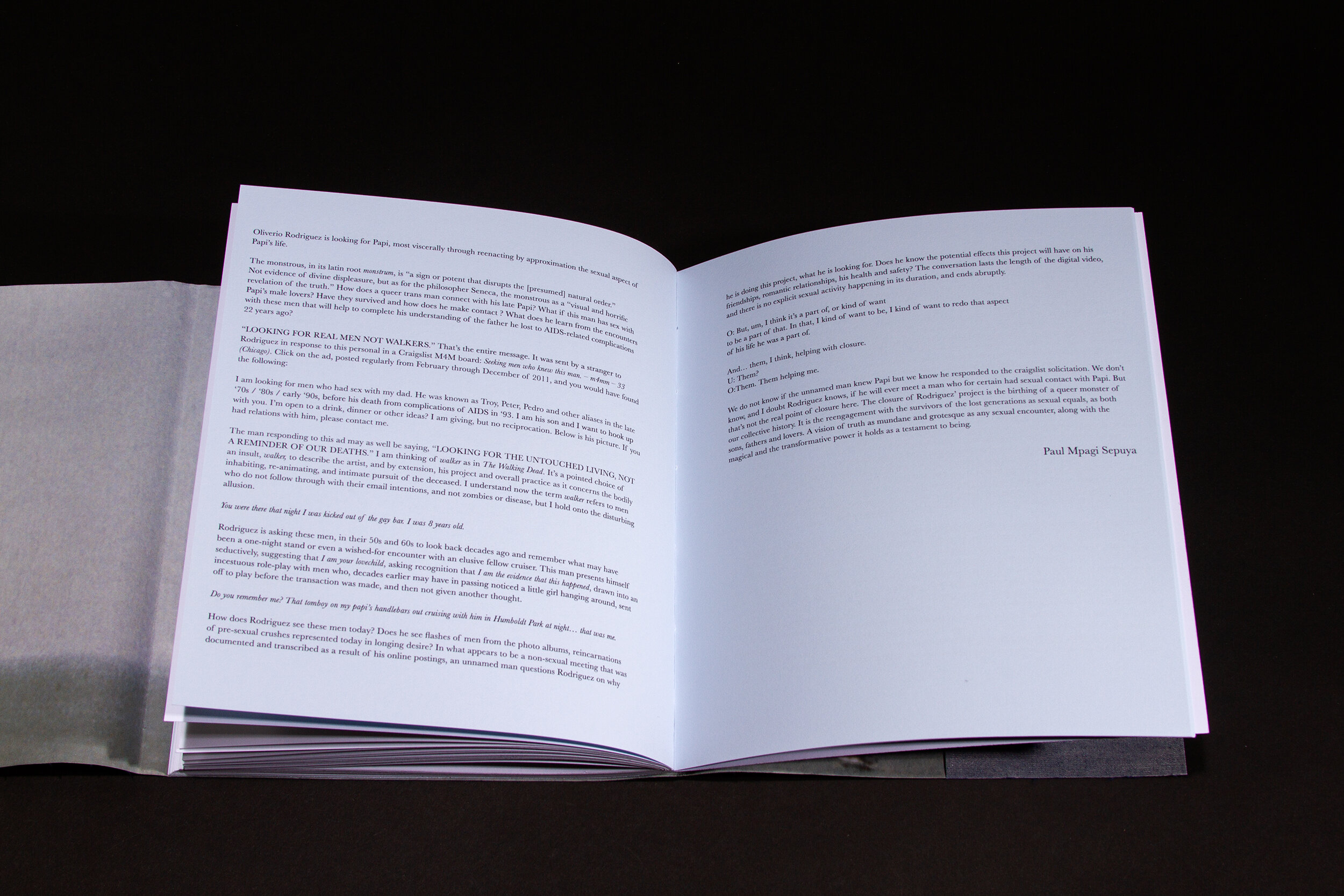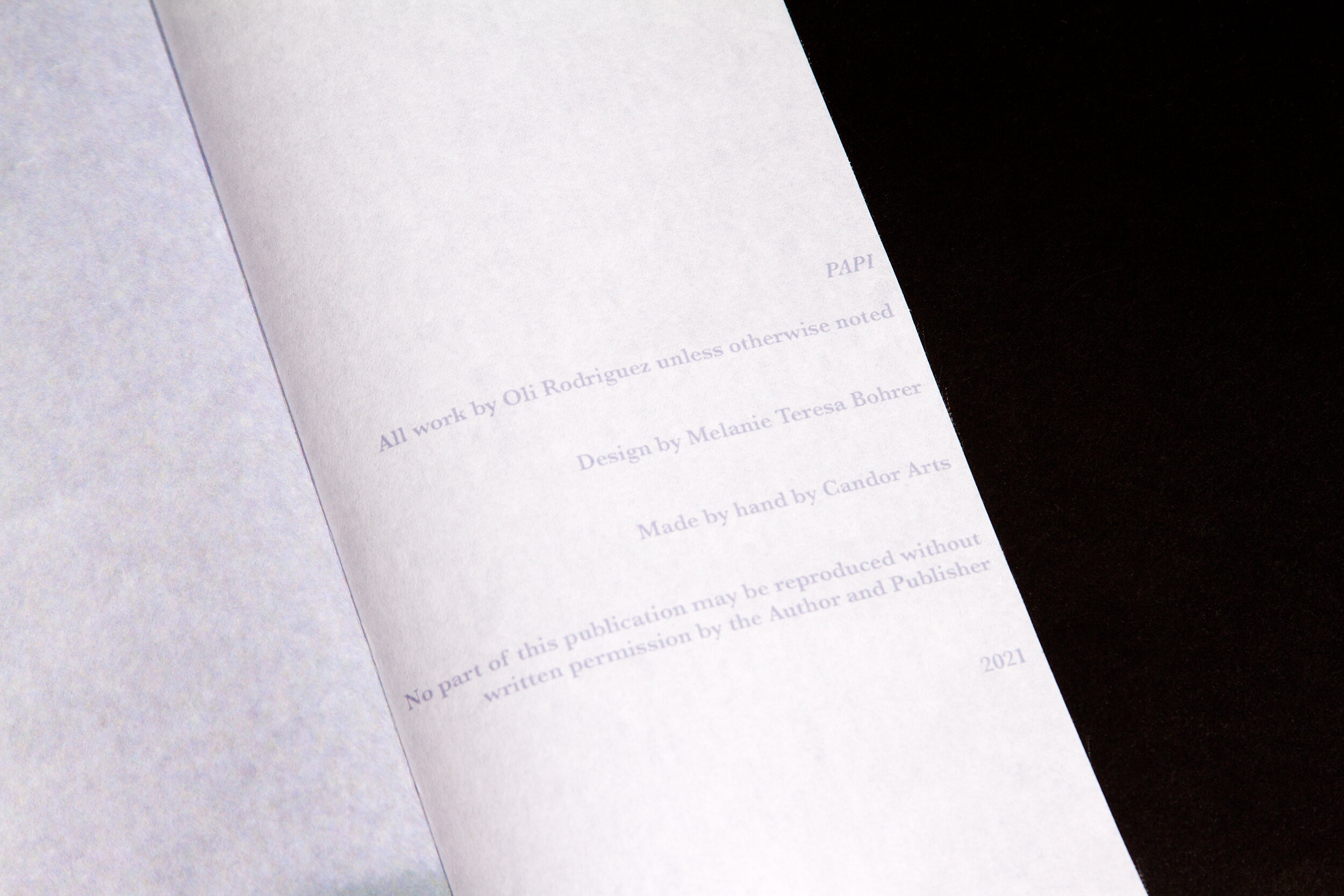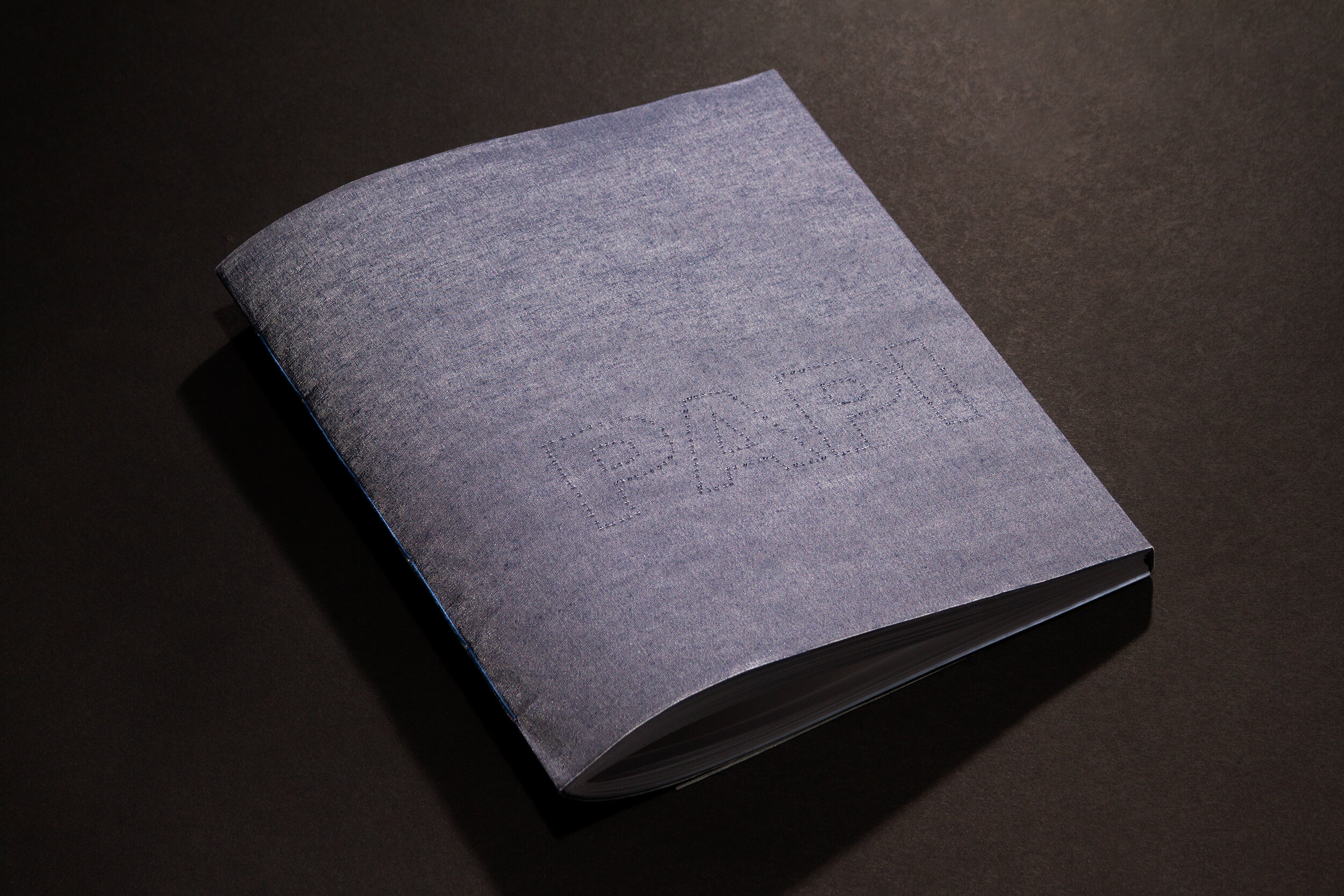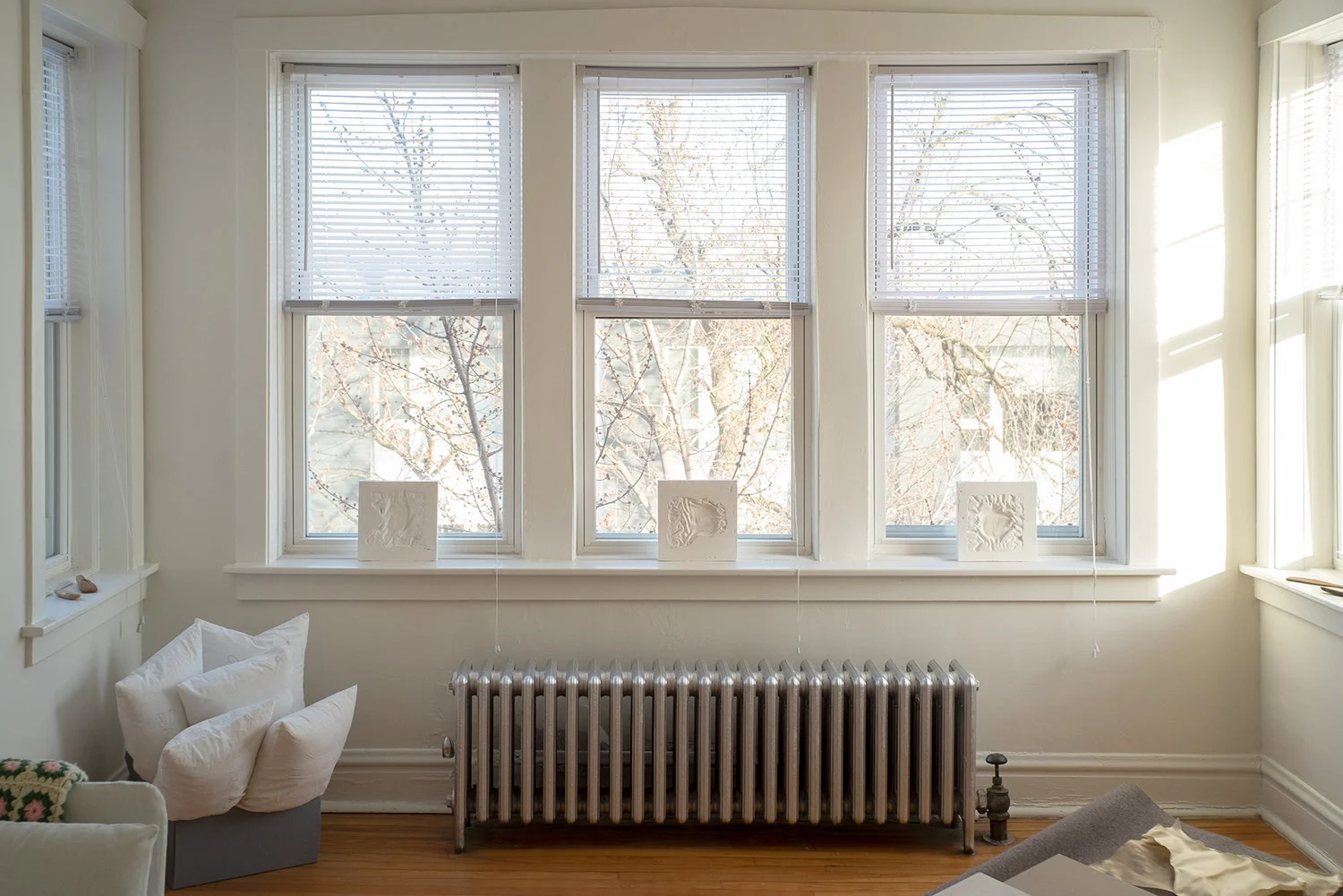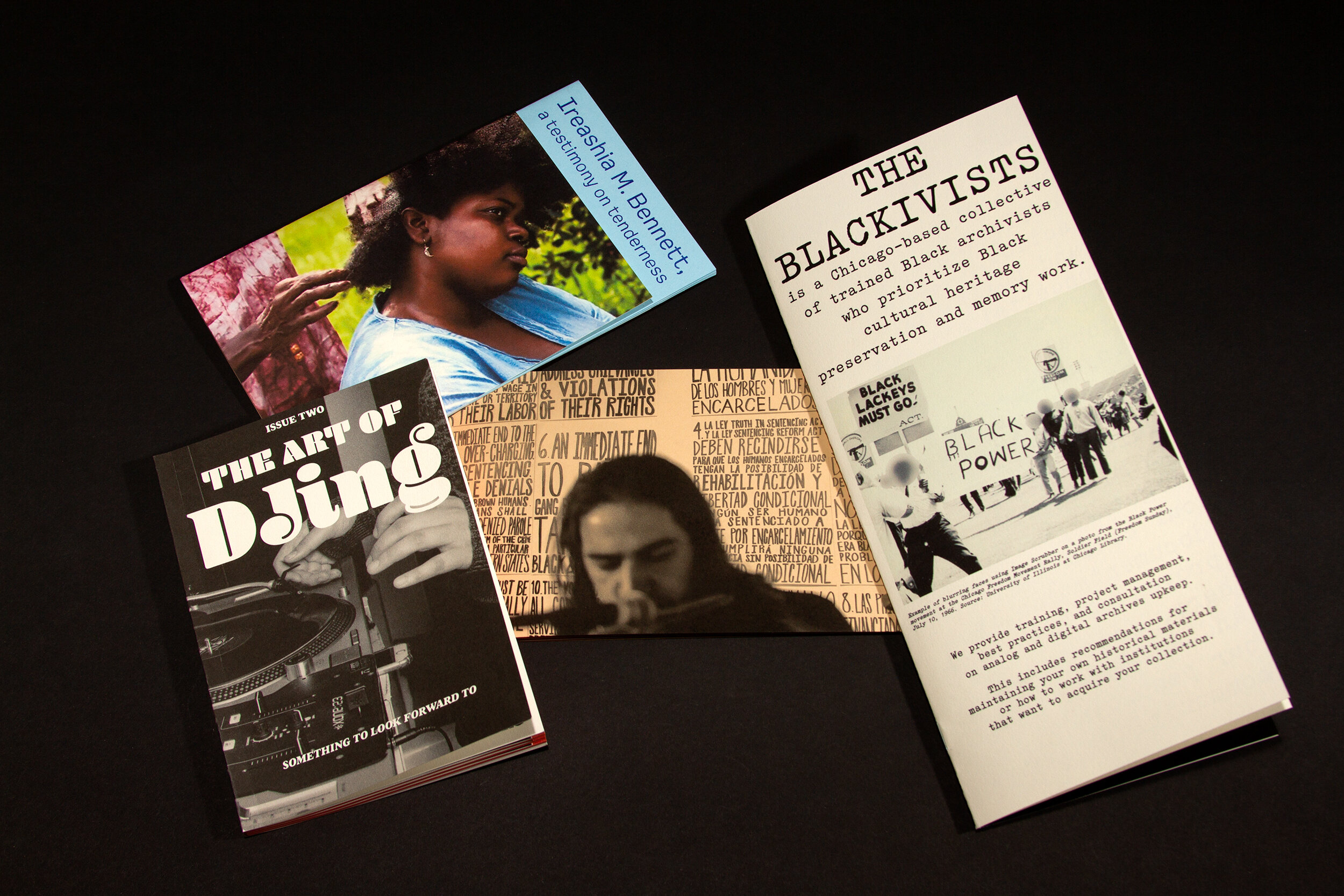Papi
PAPI
OLI RODRIGUEZ
“In Papi, I am revisiting the 1980s and 90s era of the AIDS epidemic. To reframe, reclaim and retell the history of so many queer men lost, the families of children that were affected and the queer spaces. This book incorporates photography, video performance and dialogues between queer, Latino communities and those ravaged by the AIDS pandemic, which is arguably everyone, considering the absence of the potential teacher, father, lover and friend. AIDS devastated these potential connections and these non-relationships are part of our daily mourning. Delving between constructs of queerness and familial relations, these visualizations are depictions of working class, mostly queer men and trans* people of color, who were devastated by the AIDS pandemic in Chicago. These visualizations are rooted in feminism, race/class/queer studies and the history of gender and sexuality. This artist book is integral because it reflects an era within the AIDS pandemic, specifically in Chicago and in the POC communities/neighborhoods that were affected. This is an invaluable worldview and provides a historical shift focusing on queerness within a familial framework. This book explores the multifaceted term queer, which constantly writhes and pushes boundaries, conversing with both historical movements and contemporary discourses.
This project parallels time frames pivotal in existence, roughly pushing ideas of consent through incorporating the public as a collaborator. Papi includes writing, performance, installation, video and photography. It started as a performance where I sought out men who had sex with my Papi (dad). These encounters exist as video and text through emails, which are then printed as photographs. The landscapes are Public Cruising Spots that depict locations of previous cruising spaces, which were symptomatically reduced then lost with the rise of the Internet and the concurrent generational loss of queer/gay men to the AIDS epidemic. This project explores the affect and effect of technology on gay/queer hook up culture as well as a simultaneous conceptualization of generational loss in the era of the AIDS epidemic. I am interested in the present loaded contemporary landscape of these photographic sites and exploring the remnants, the changes, the barrenness and the historically lost subtext. These are green spaces no longer identifiable nor connected to their historical cruising roots. The rise of technology shifted the intimacies of these spaces. The photographic landscapes are evidence, they initially began with my Papi but ultimately begin a dialogue of the mass devastation of queer men during the AIDS epidemic. These are contemporary remains of 70s, 80s, and 90s public hookup spots in cities, Chicago, NYC, LA, Key West and Miami, these locations found through my Papi’s archival images. These landscapes were documented with 110 film, a tourist film camera, a popular 80s medium in the reconstruction of this era. In addition to reshooting these landscapes, there is an archival component where I curated from thousands of his photographs that depict growing up in a gay disco with queers, kids and cats.”
—Oli Rodriguez

